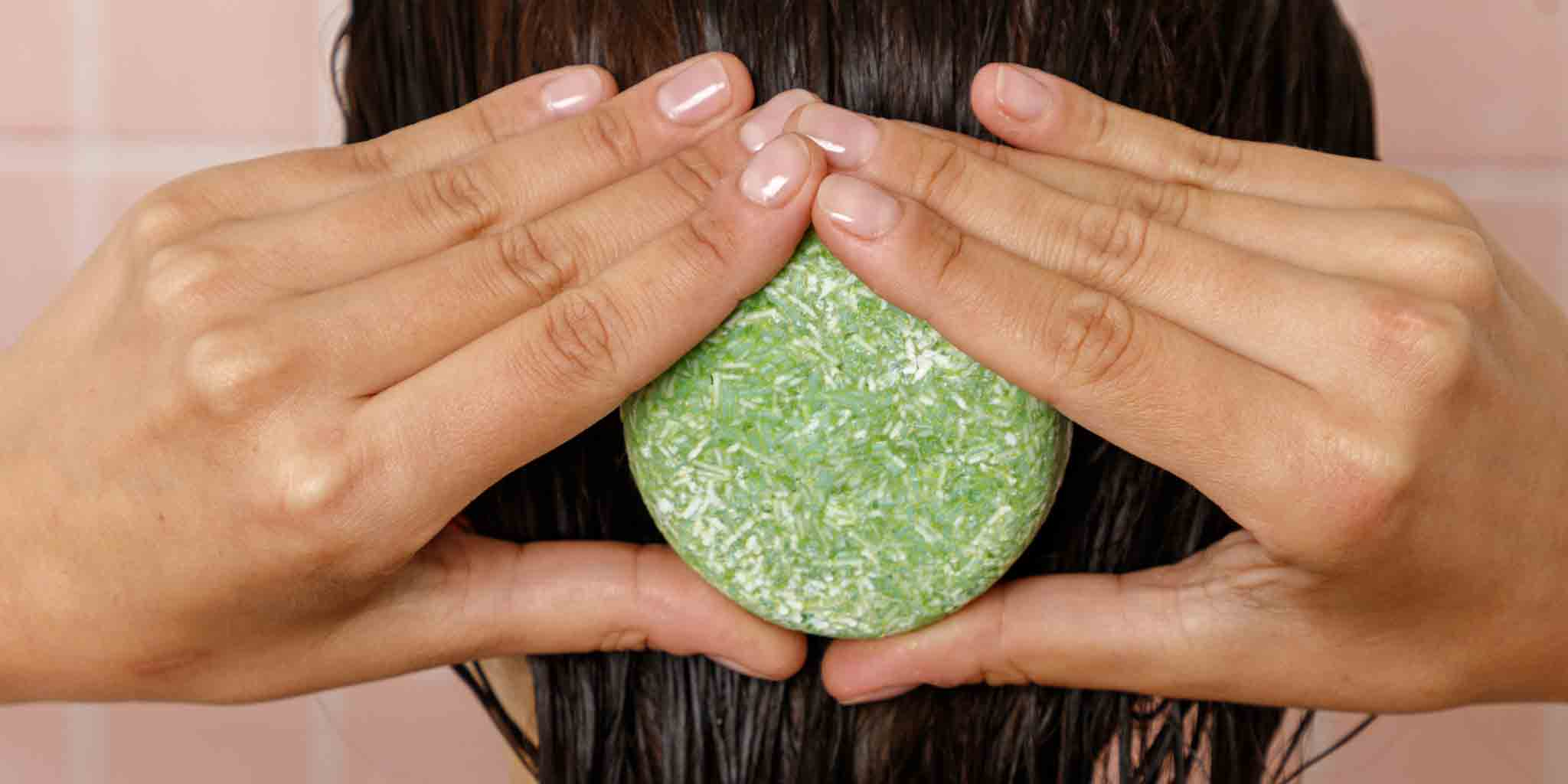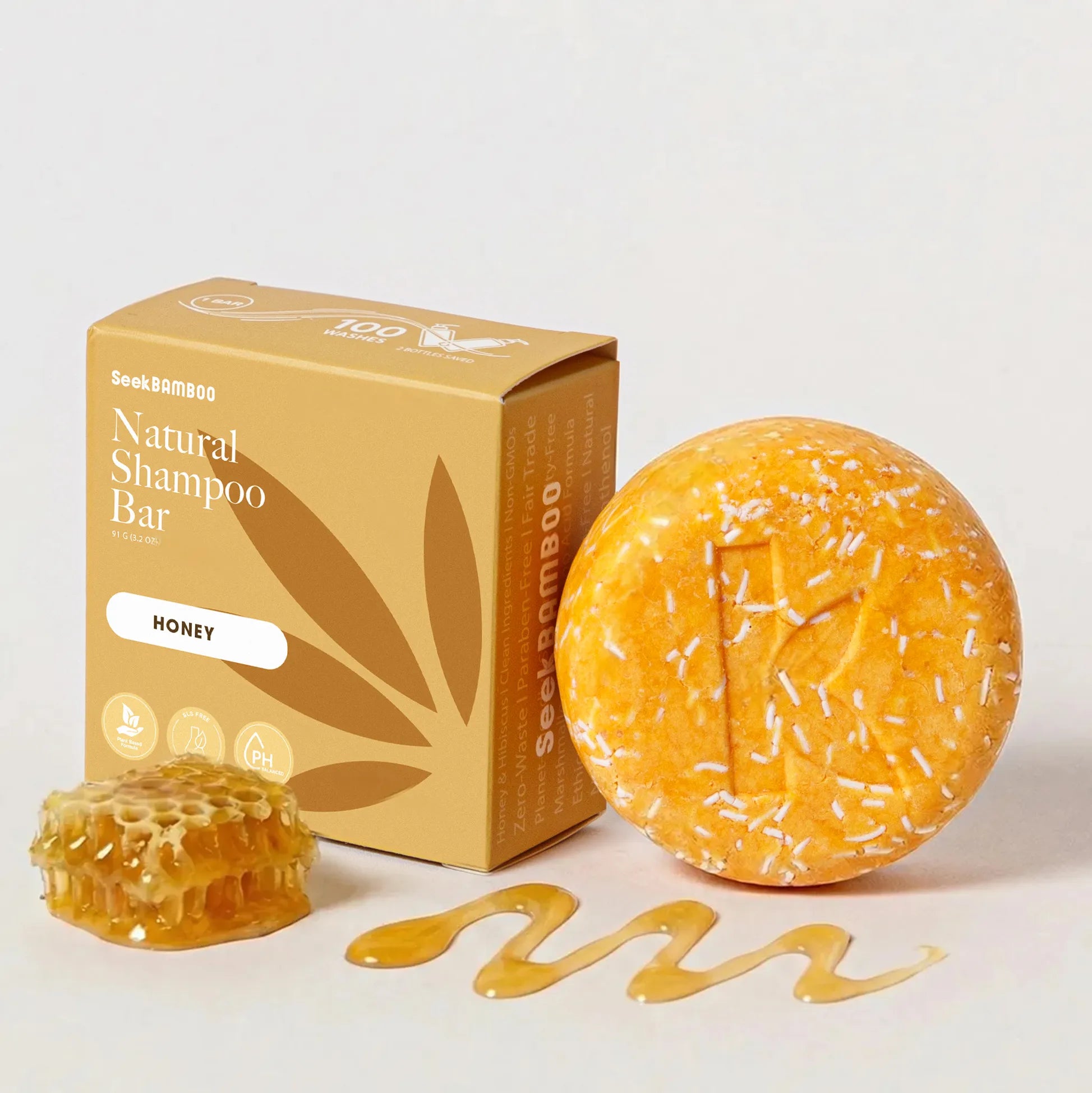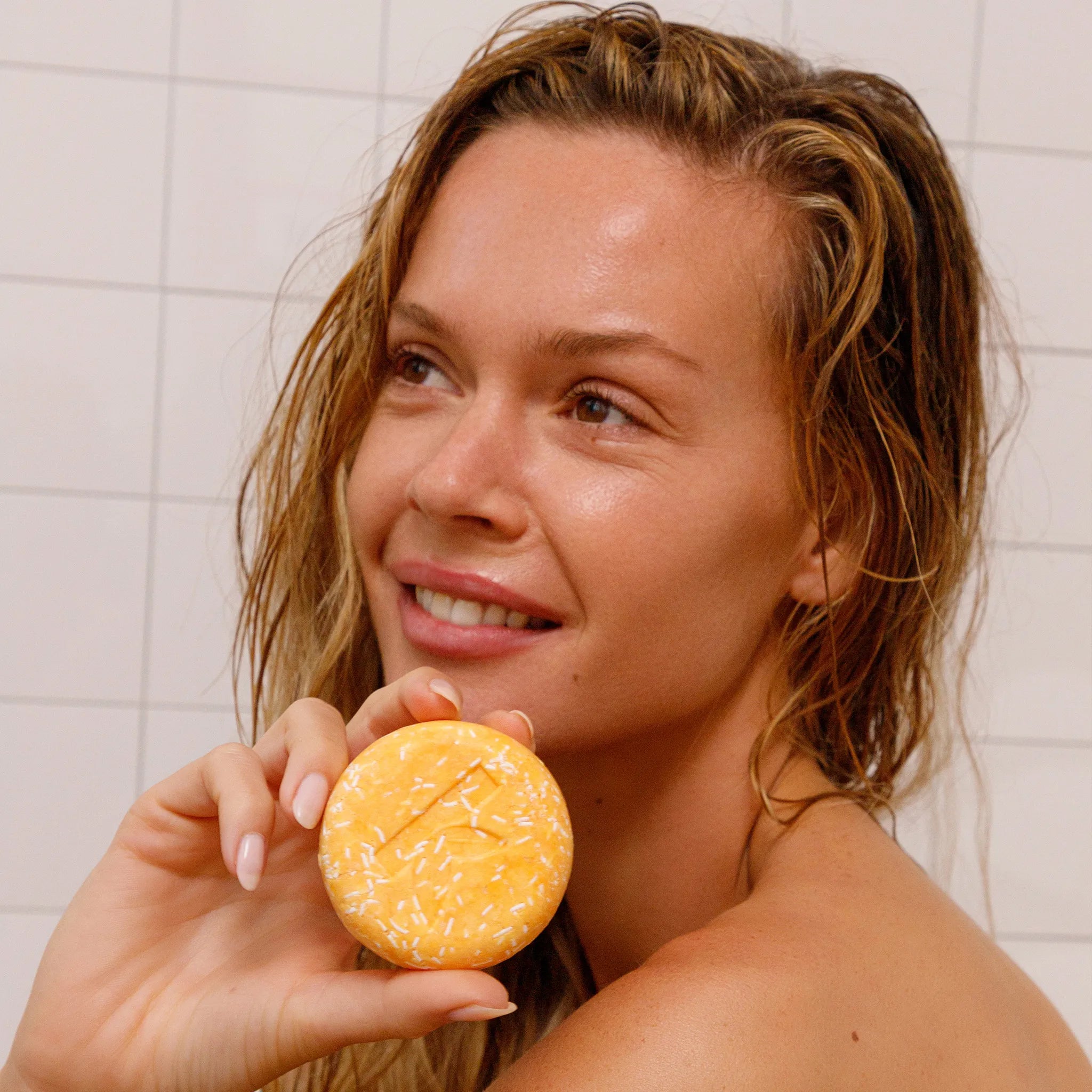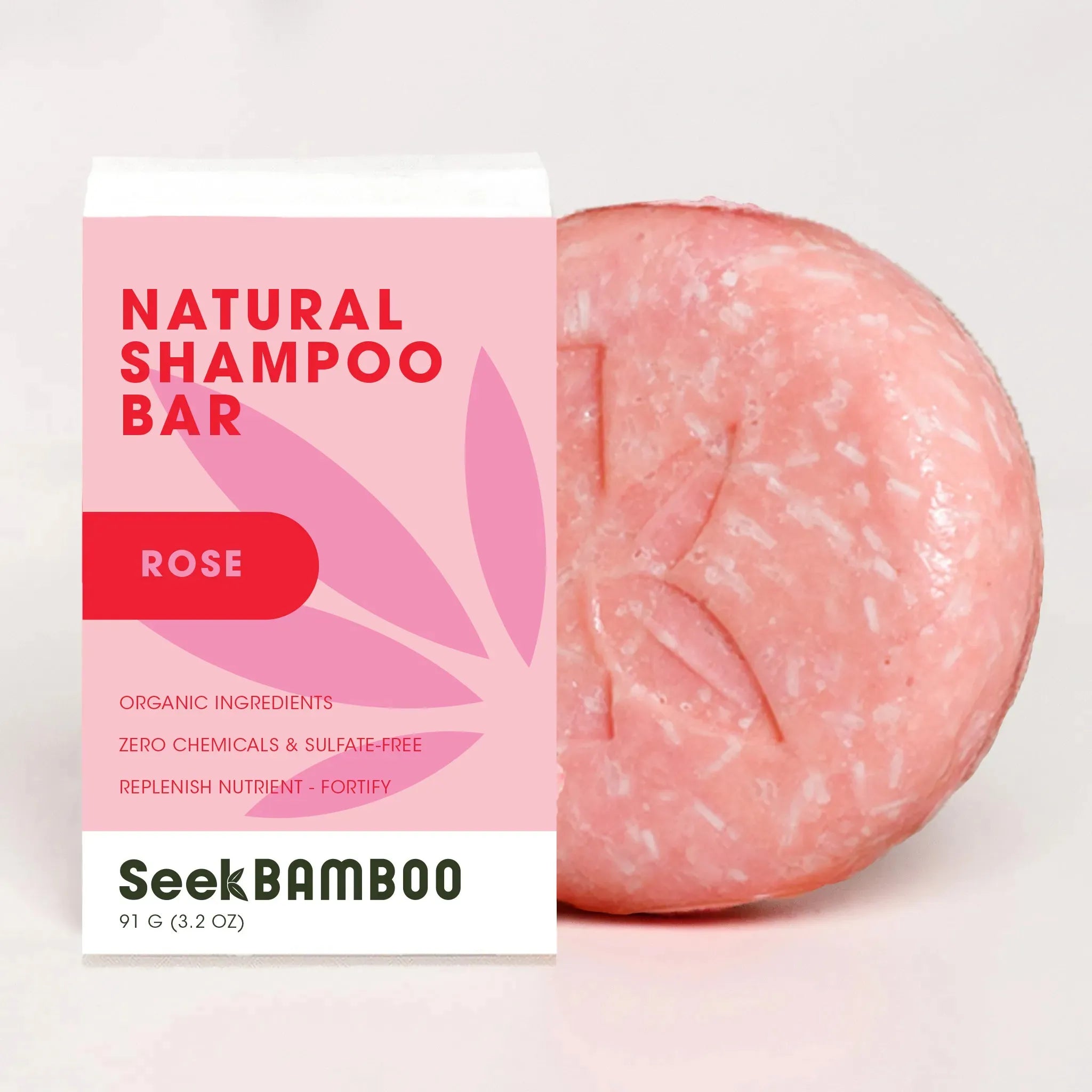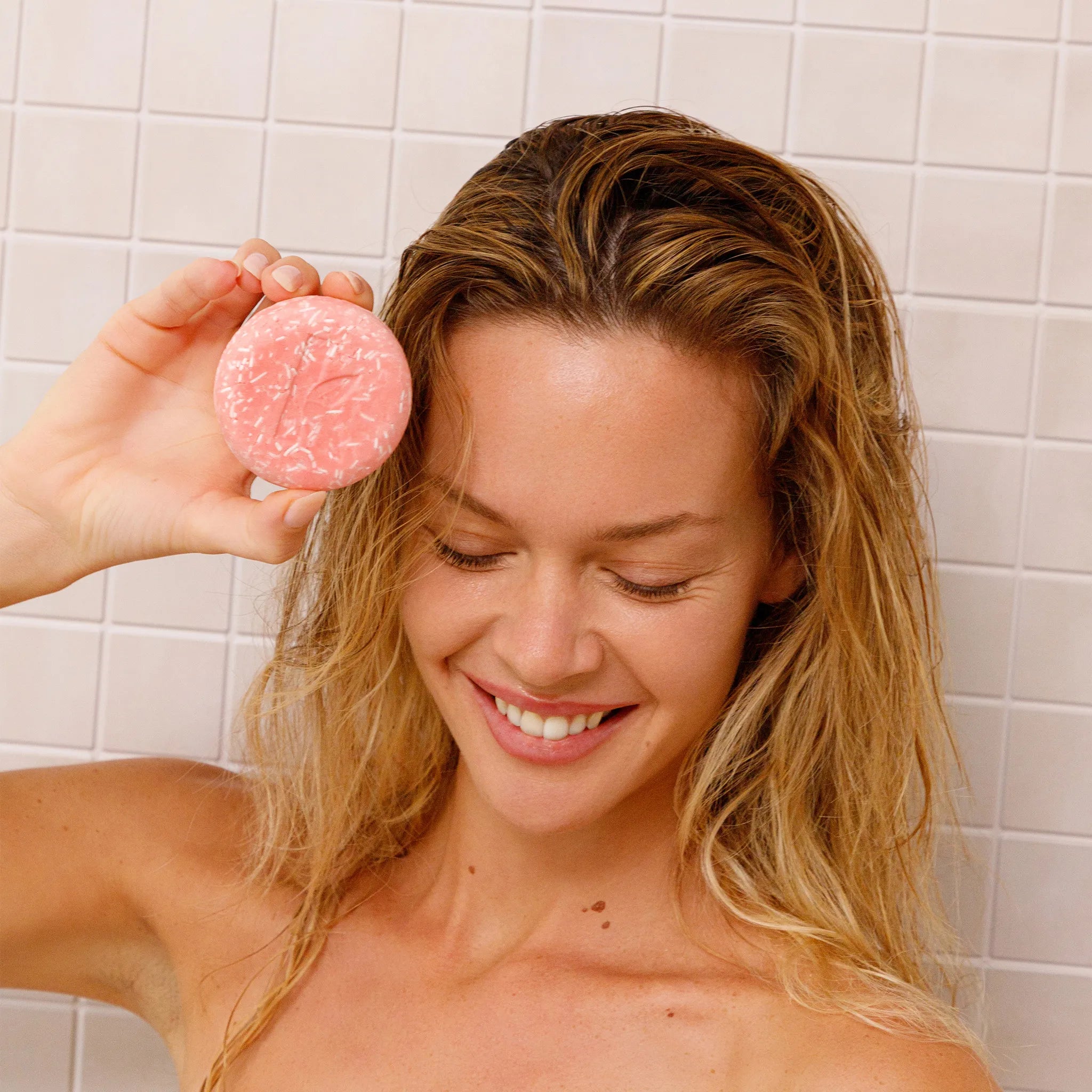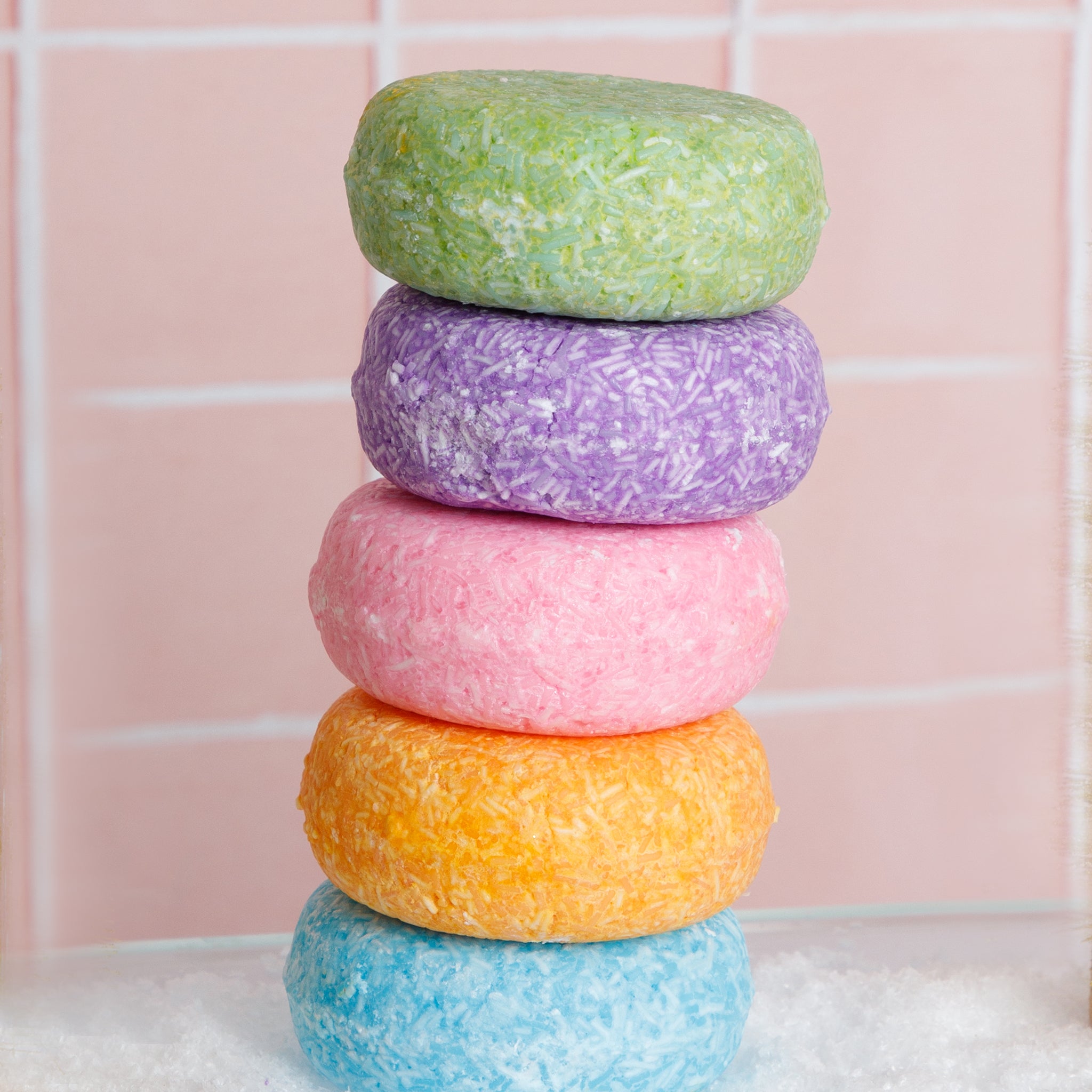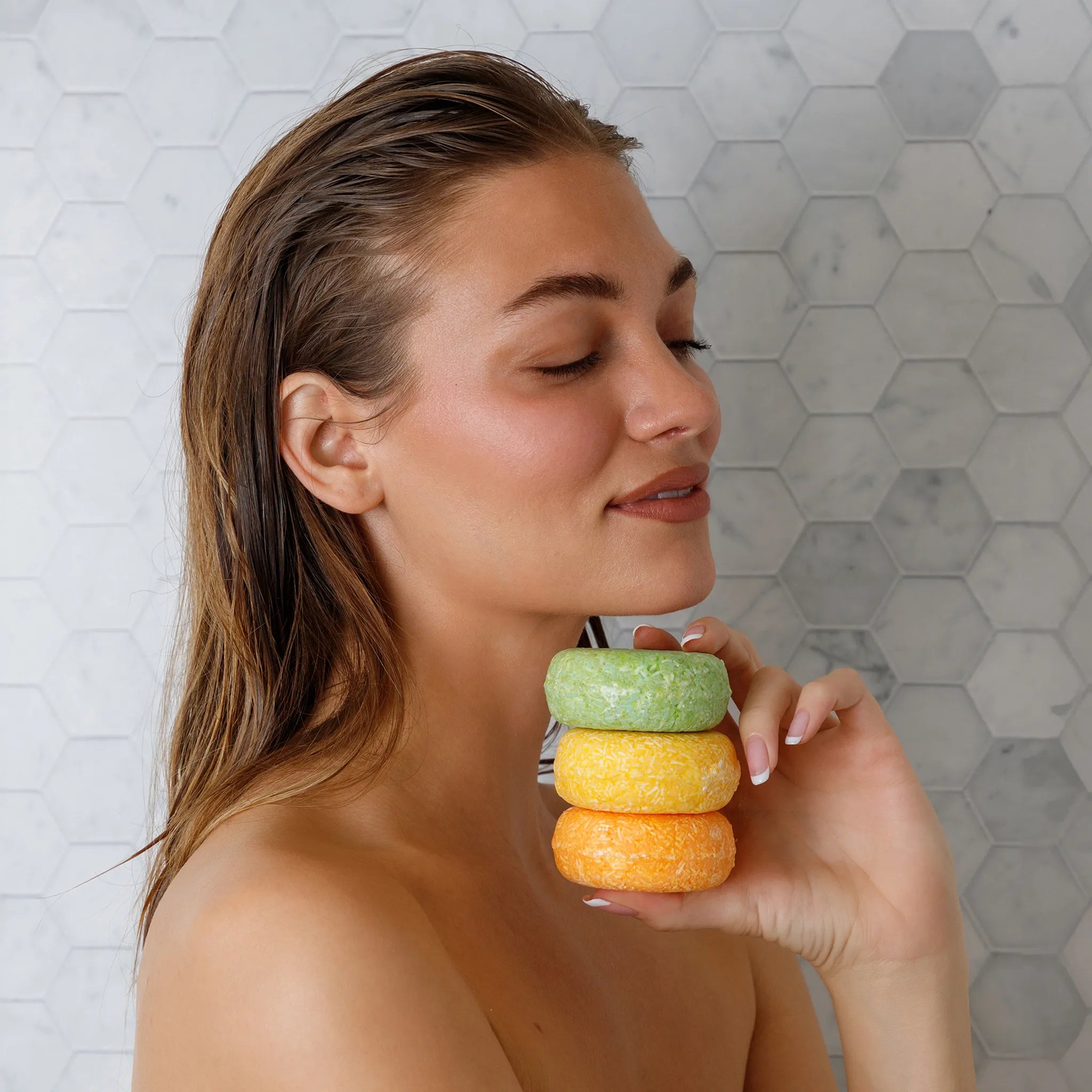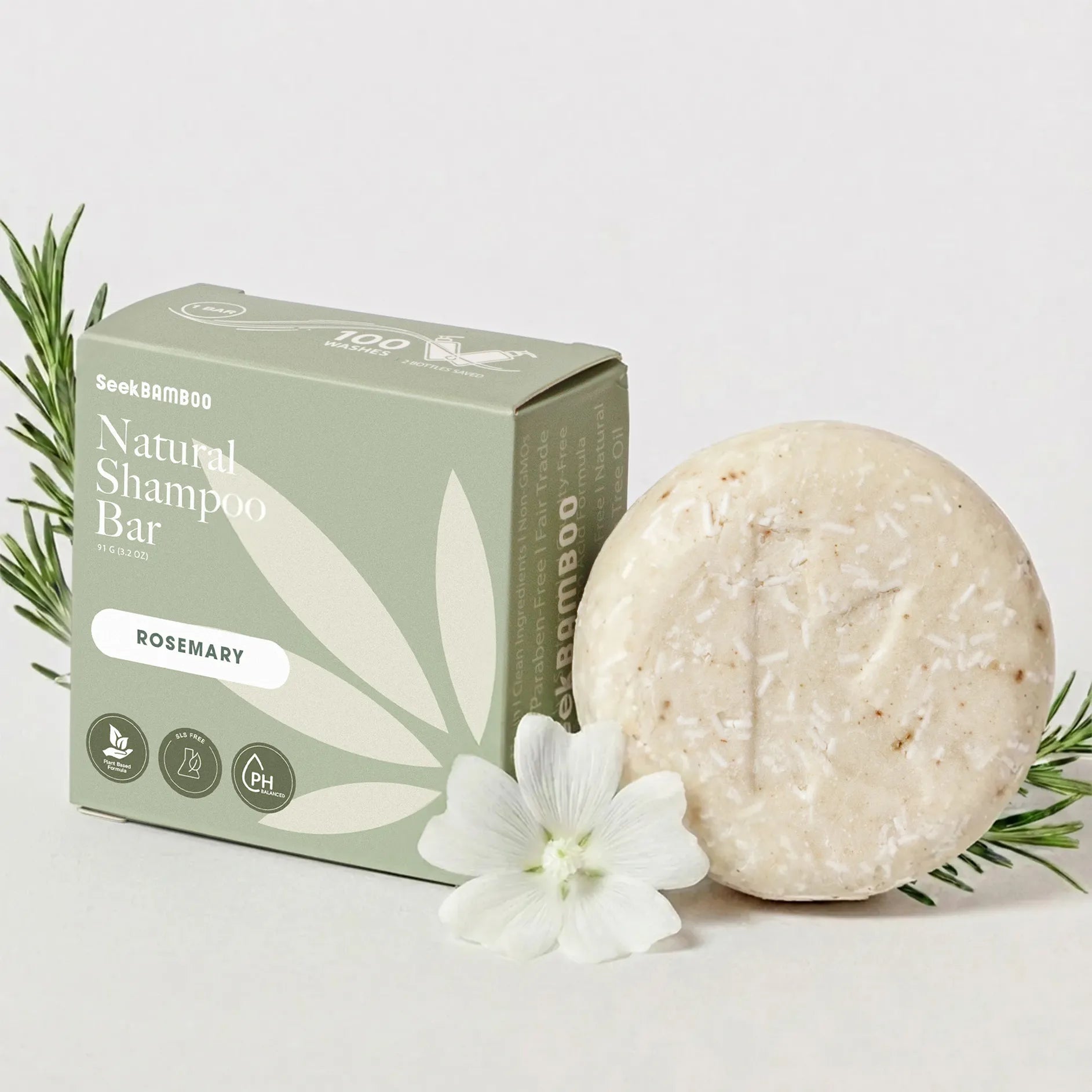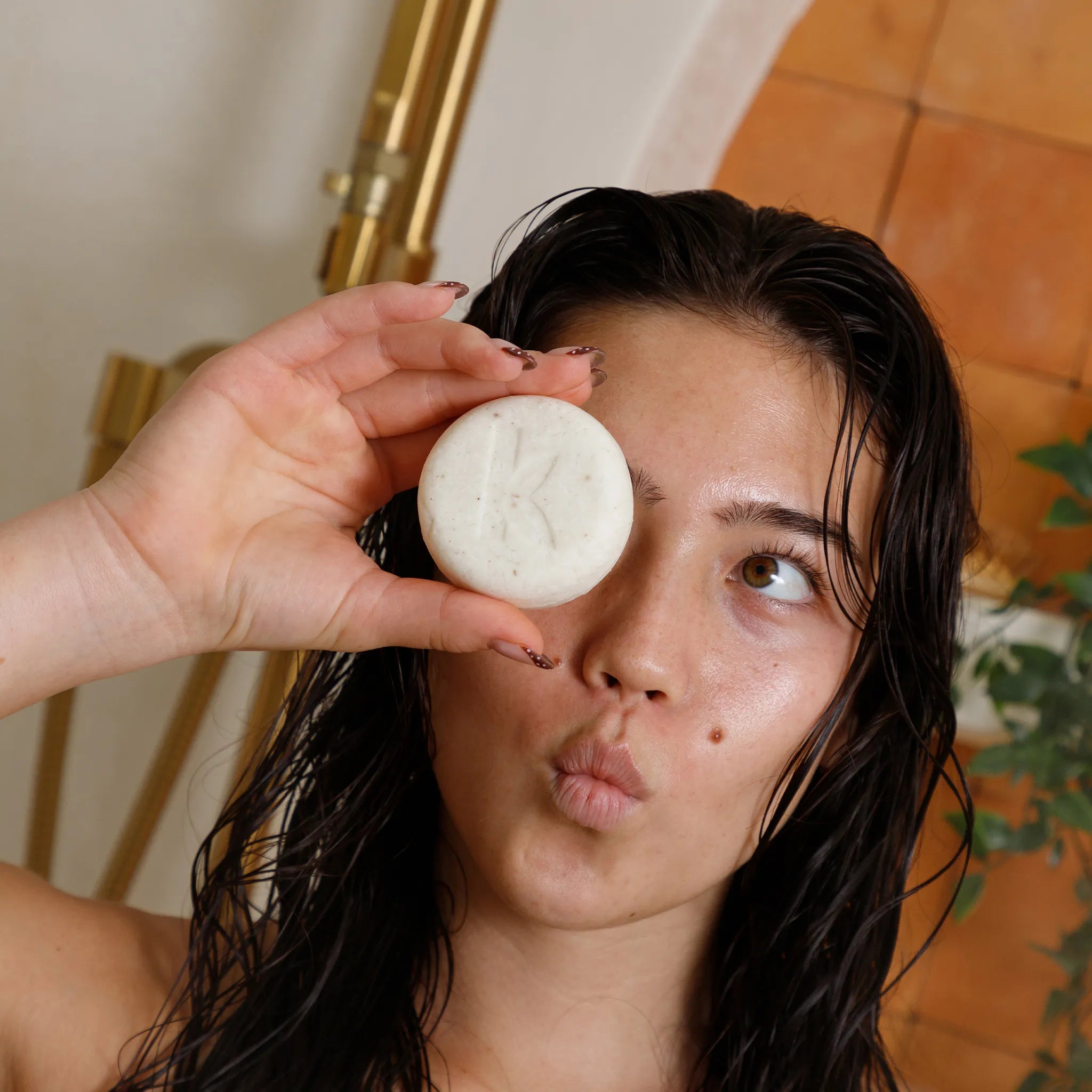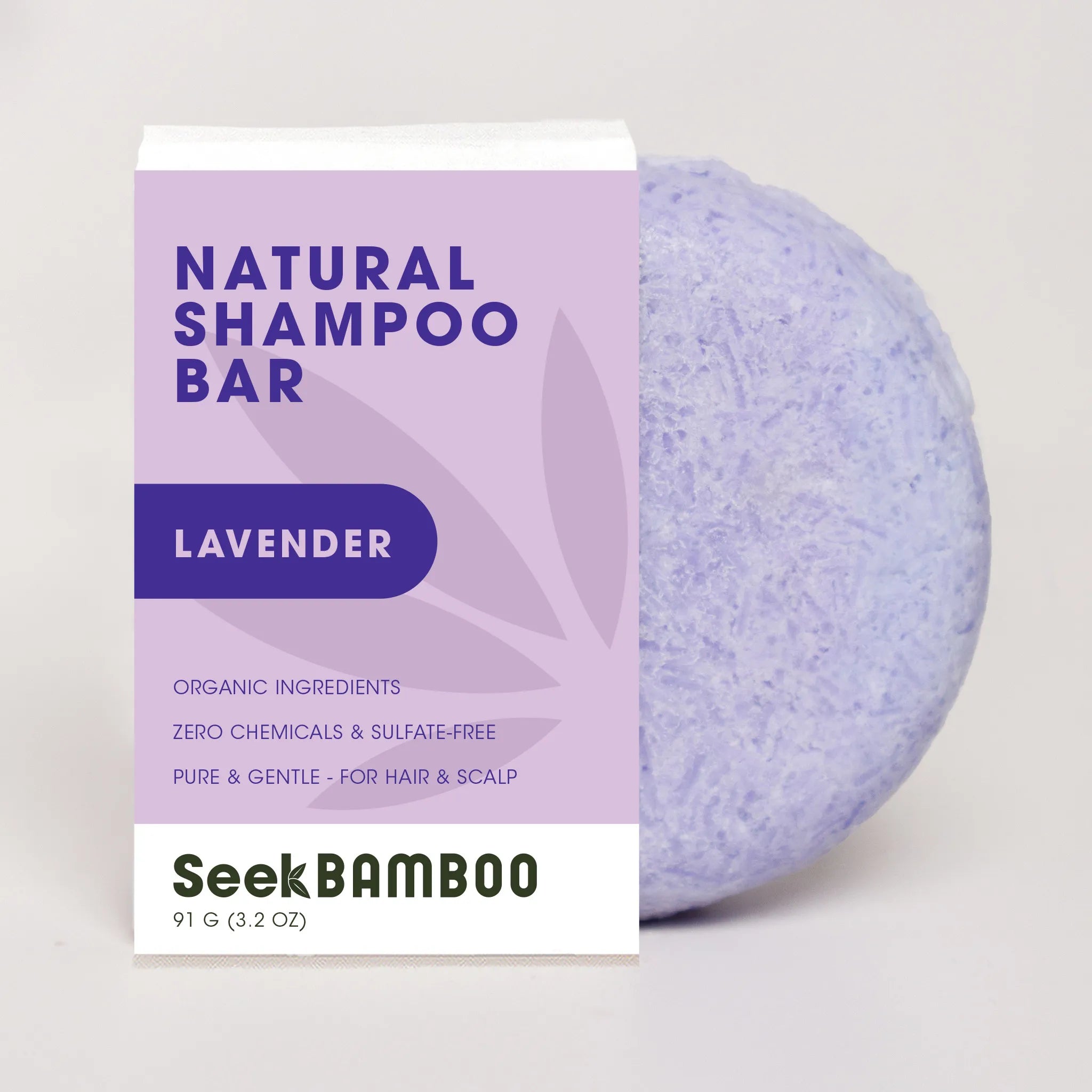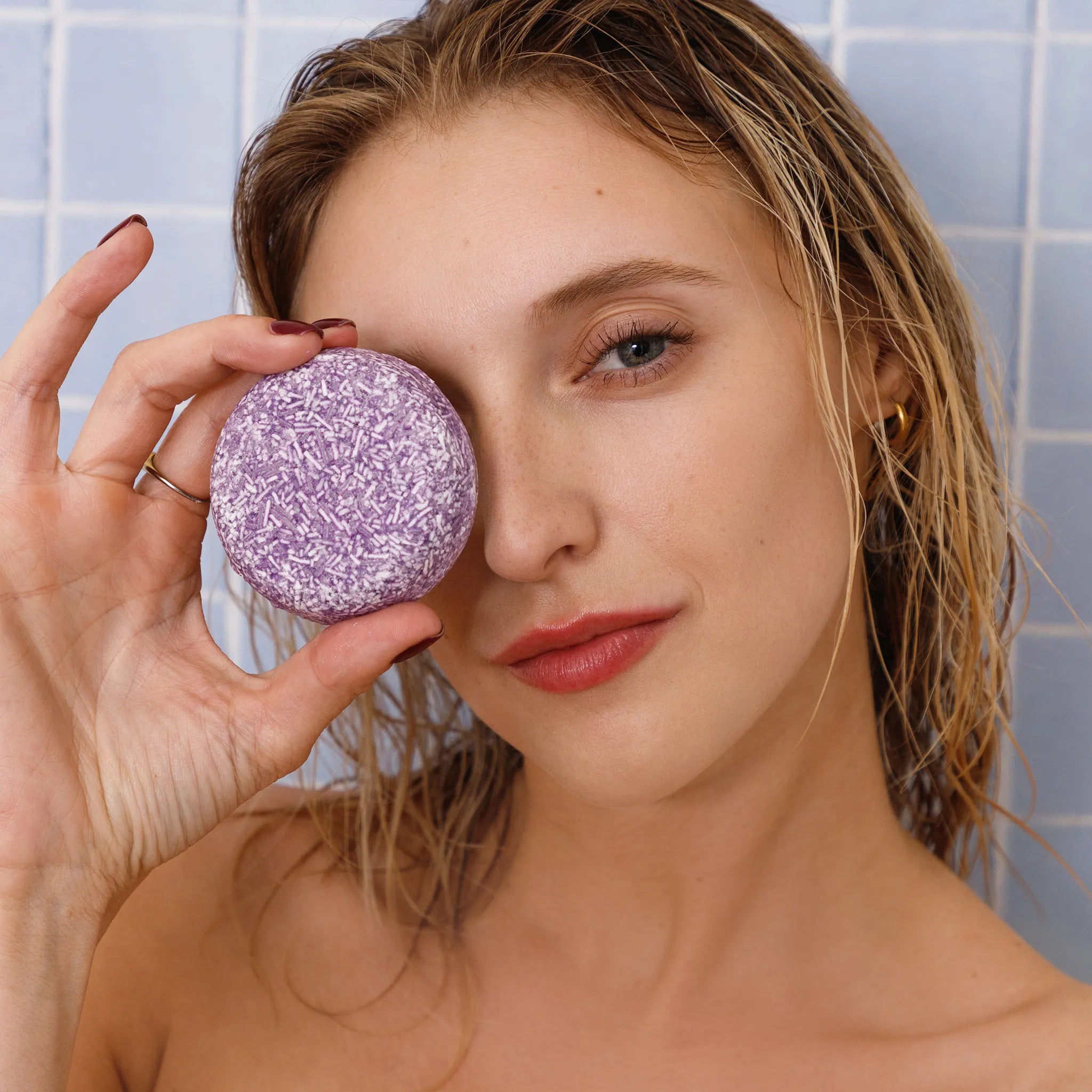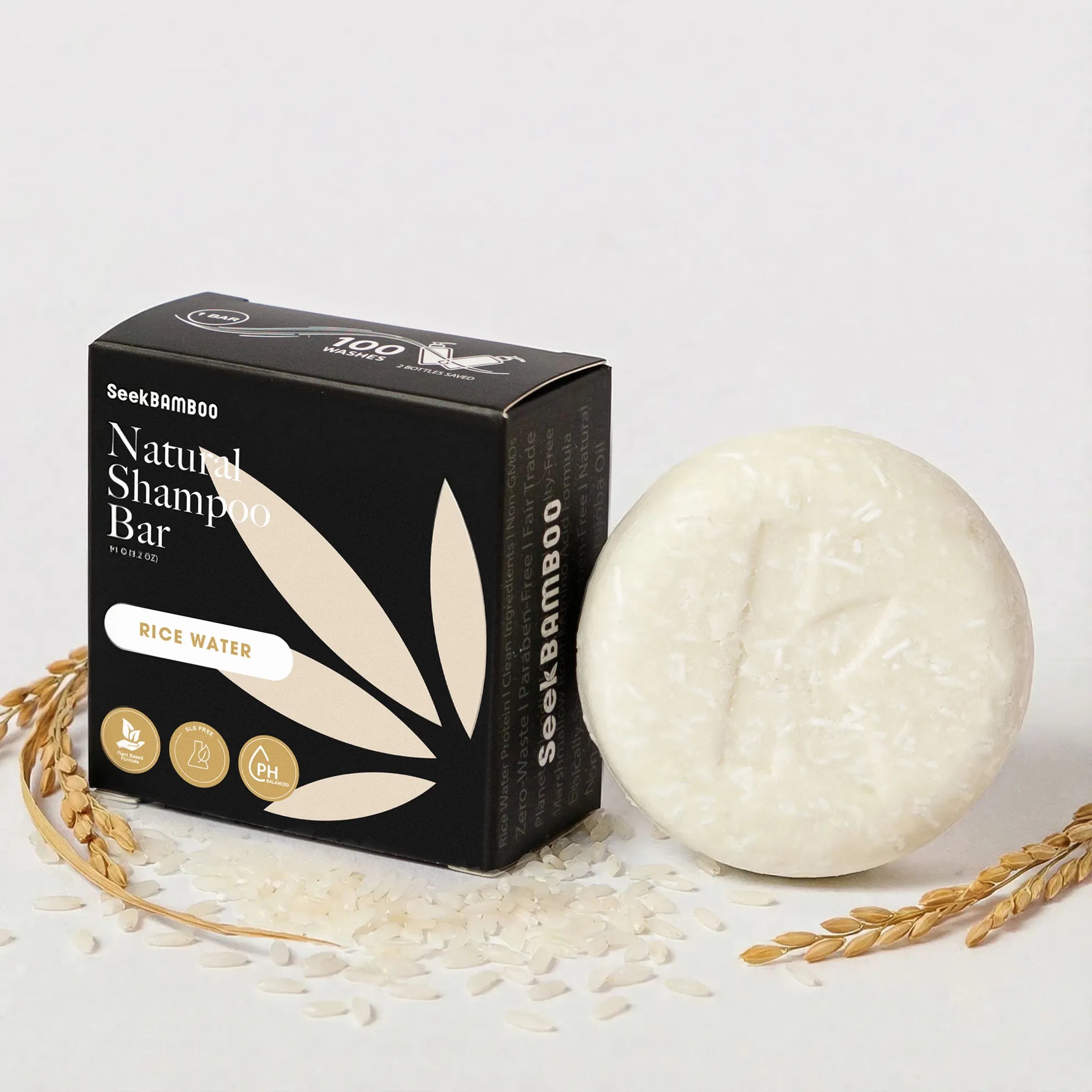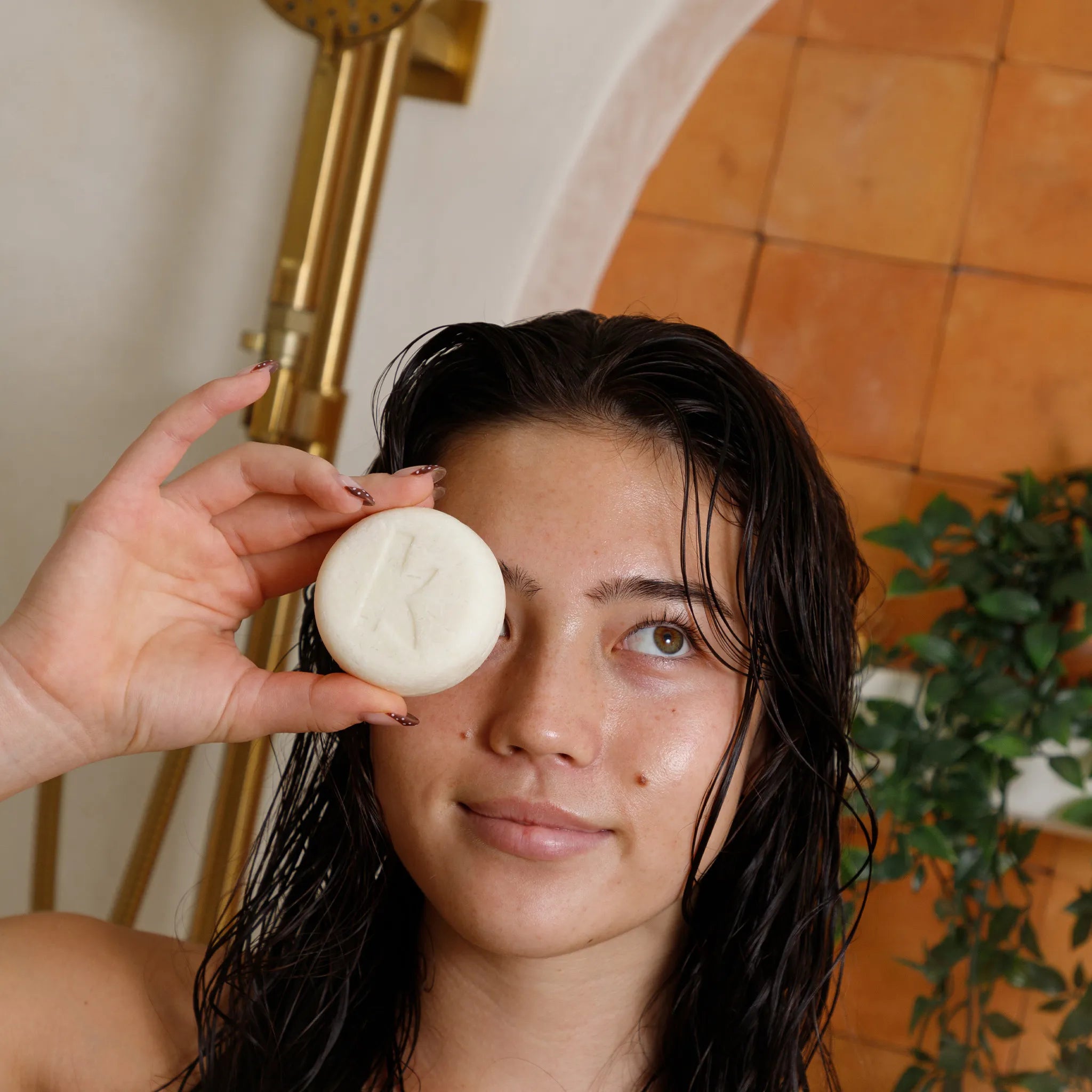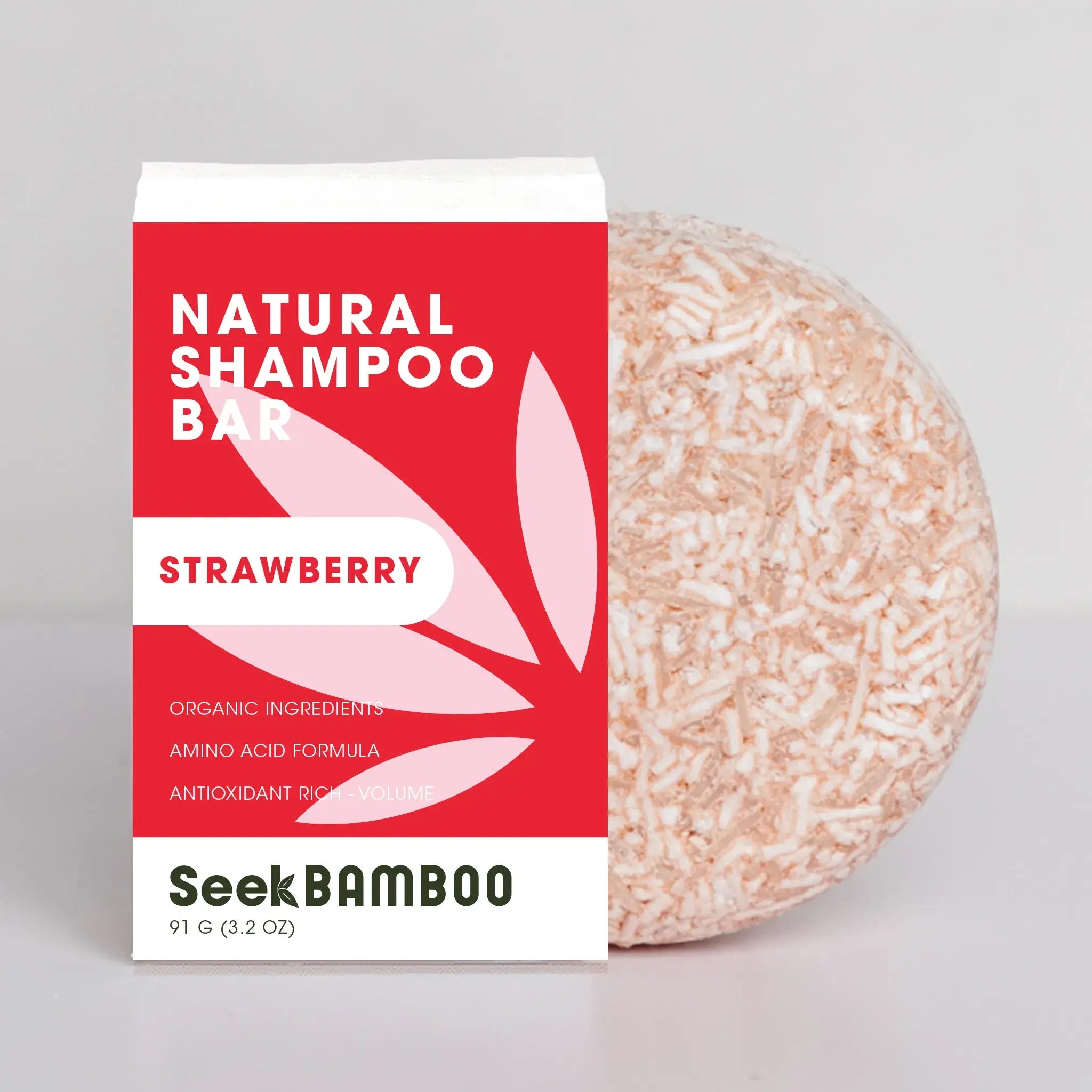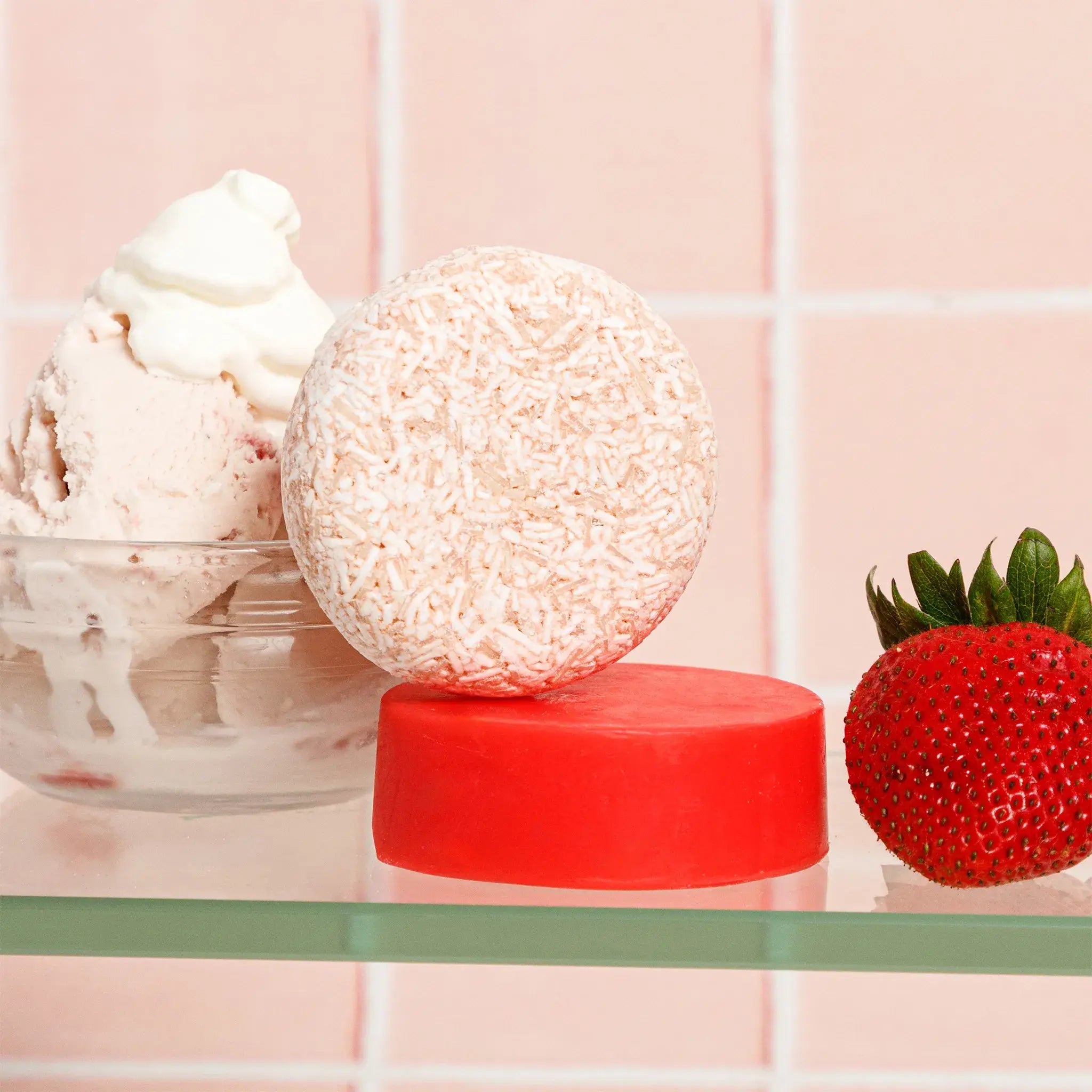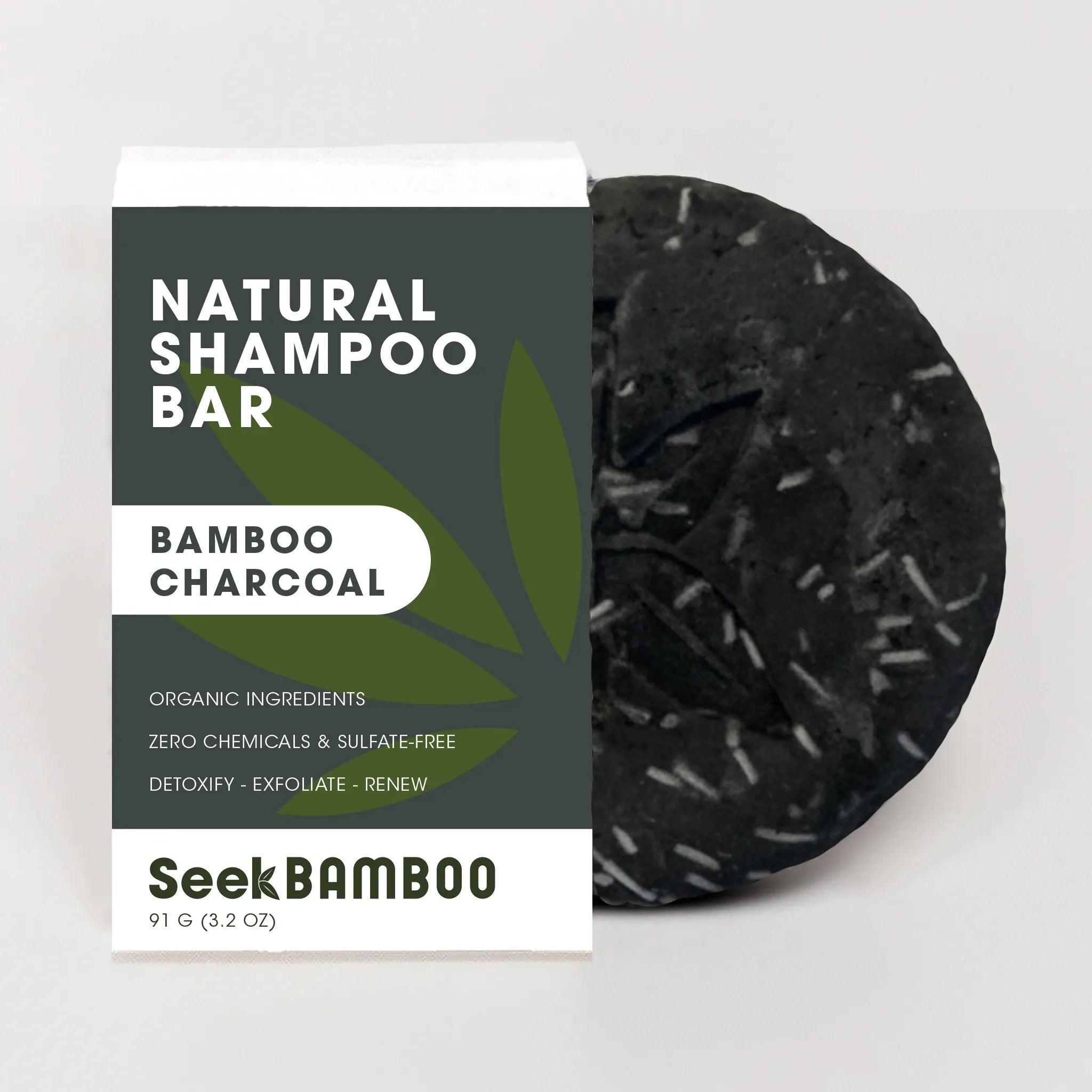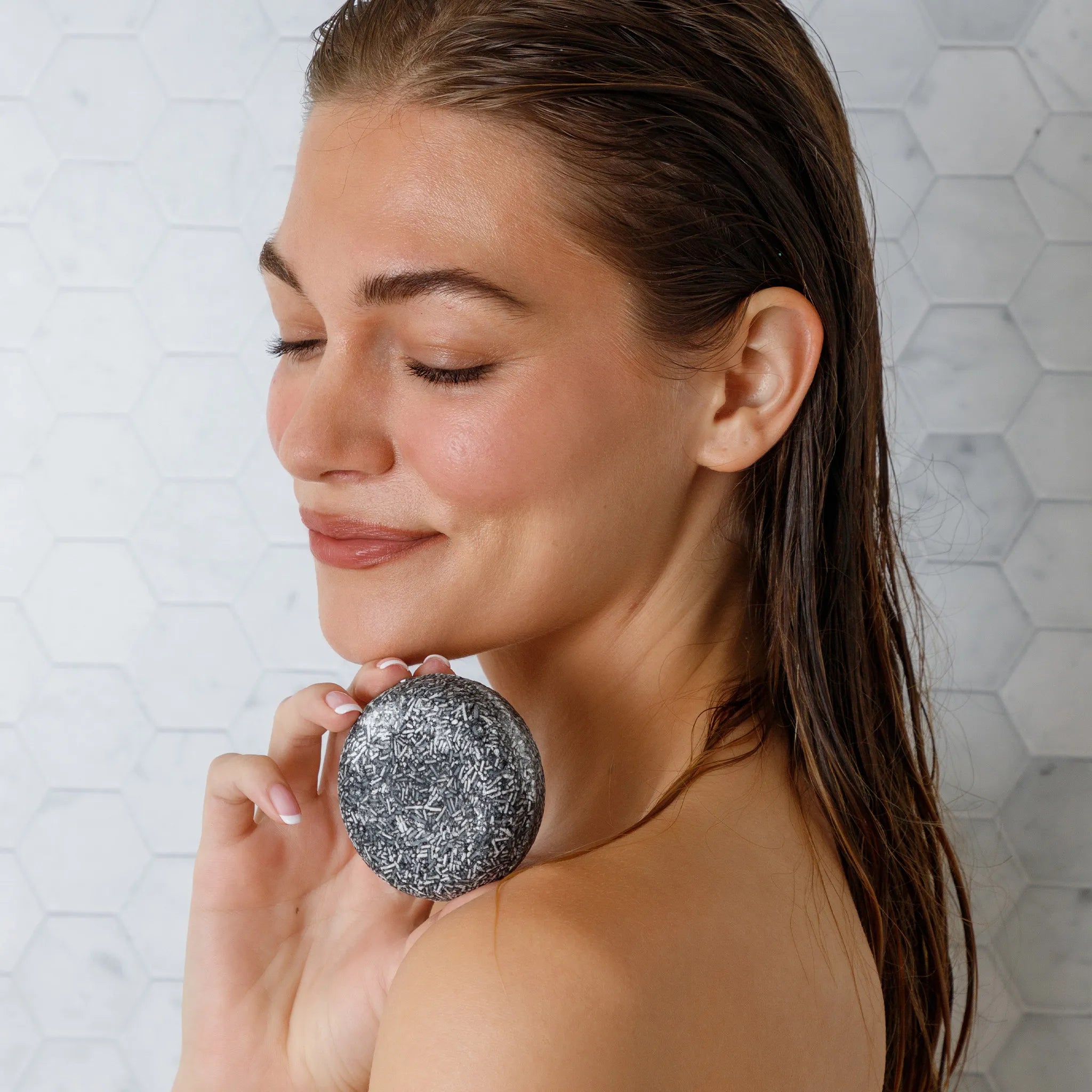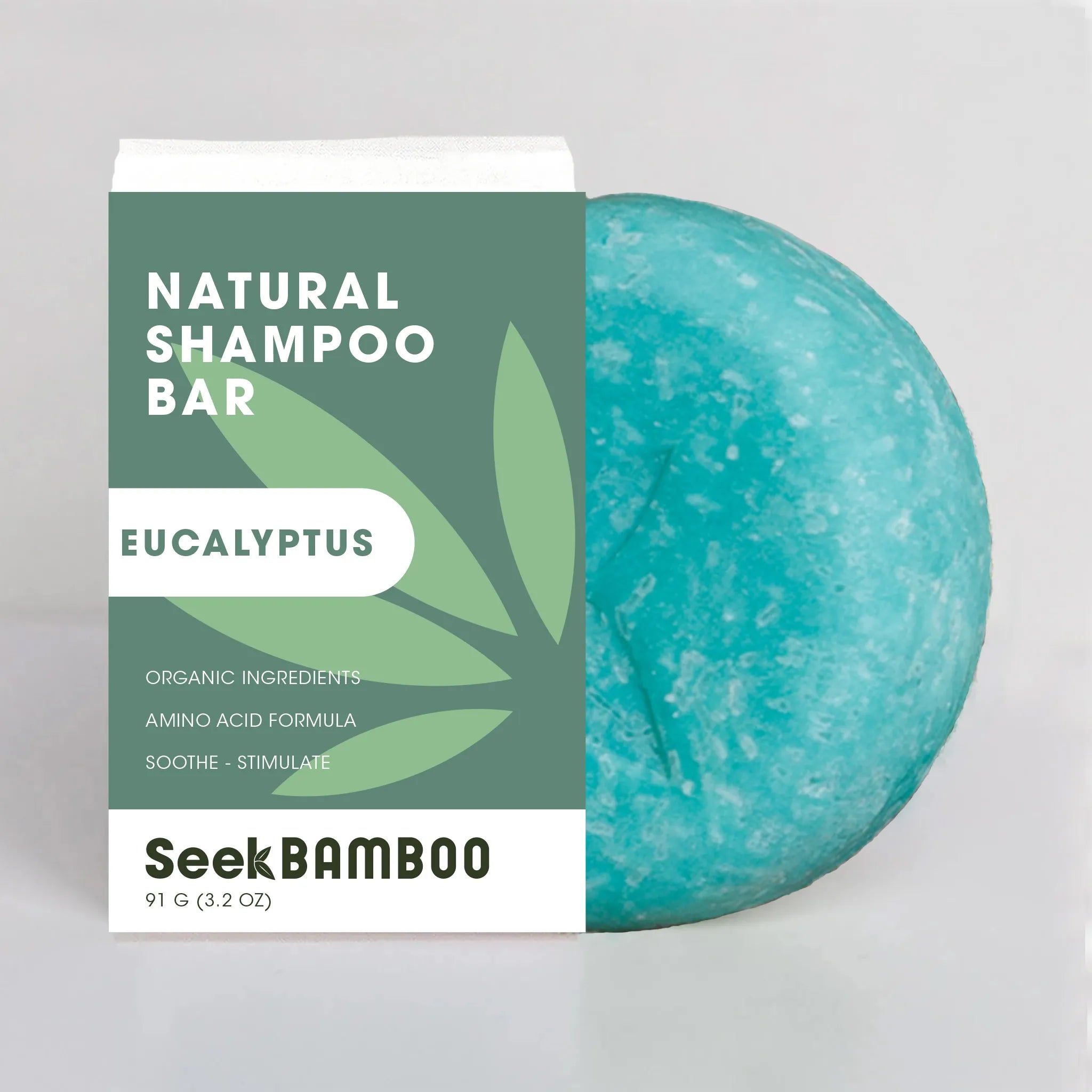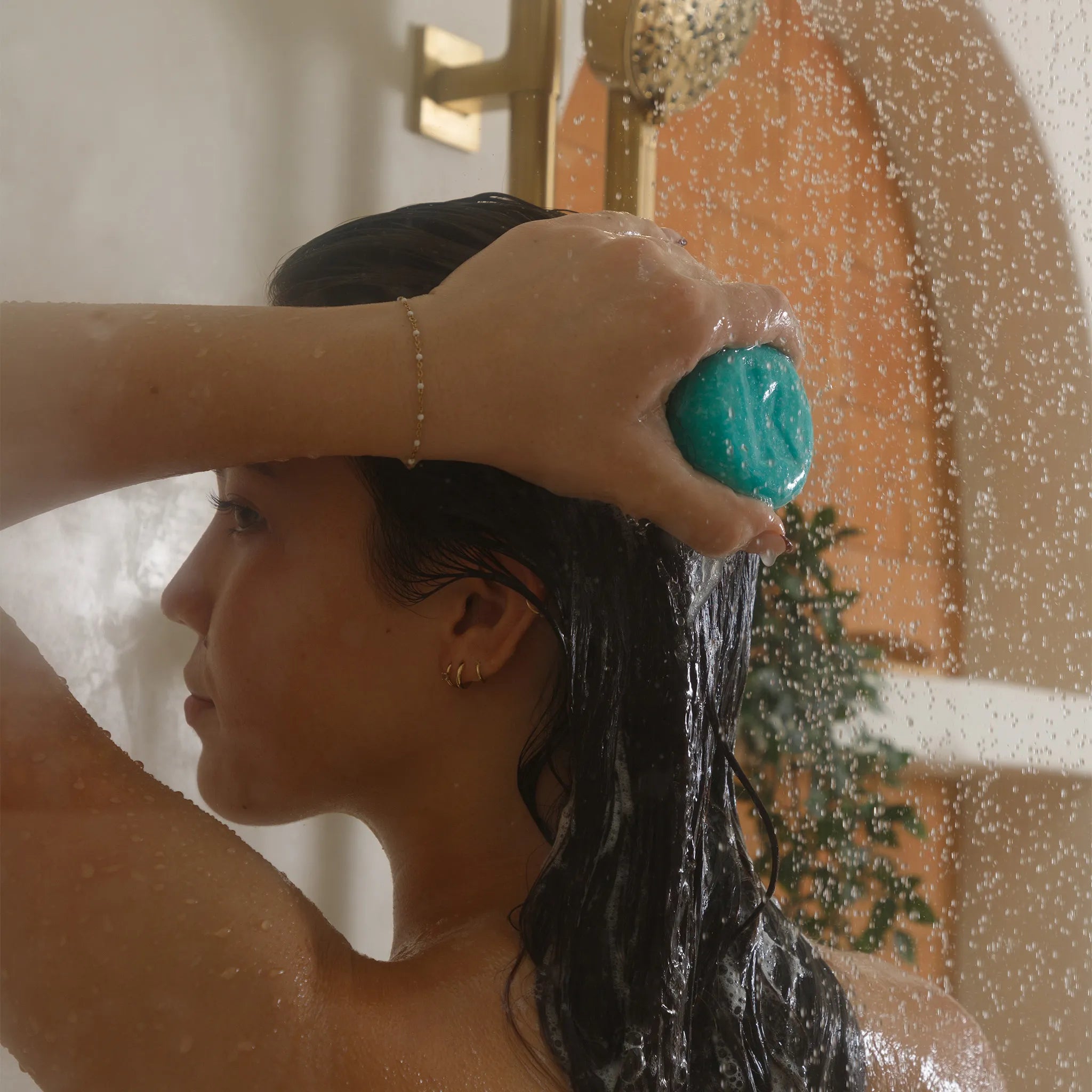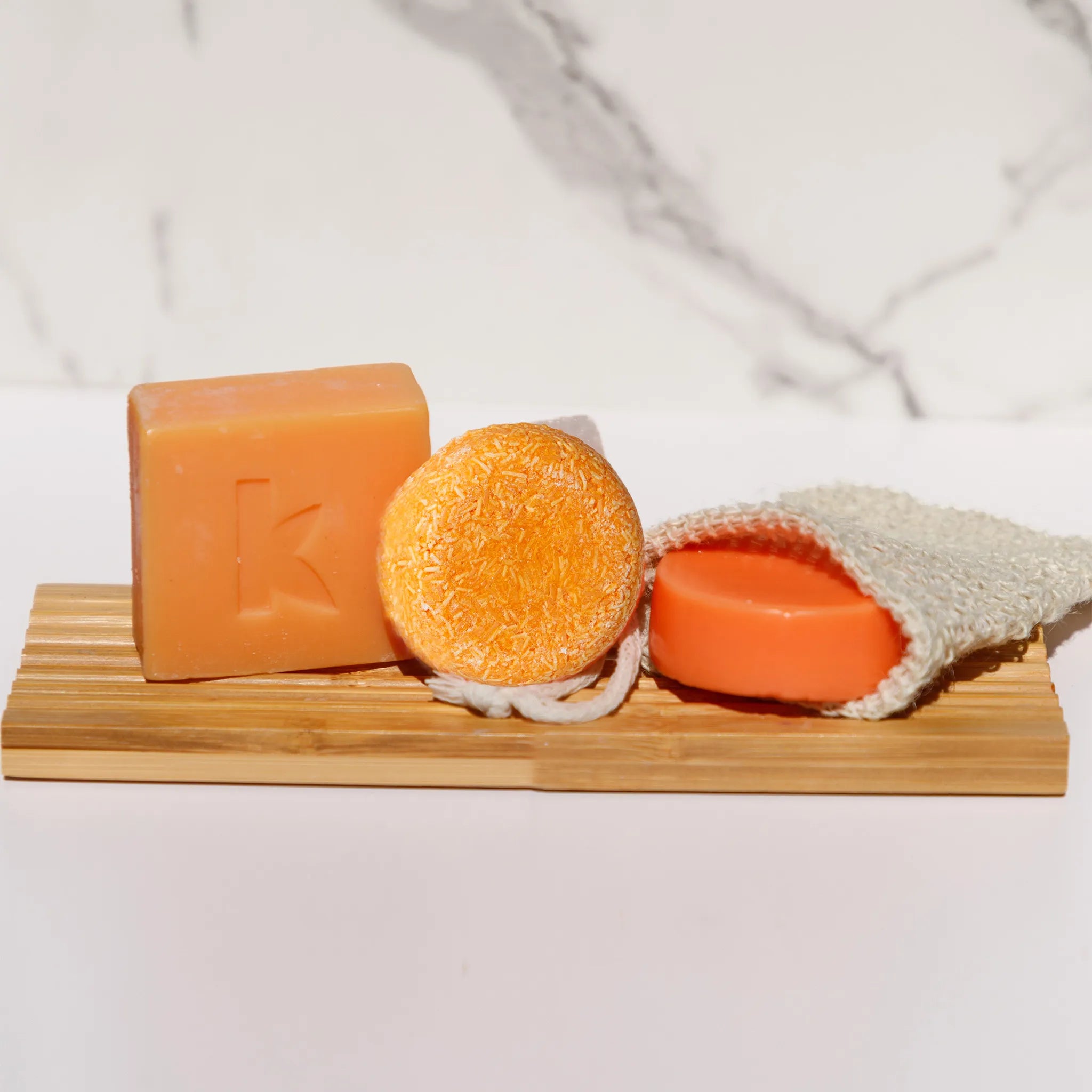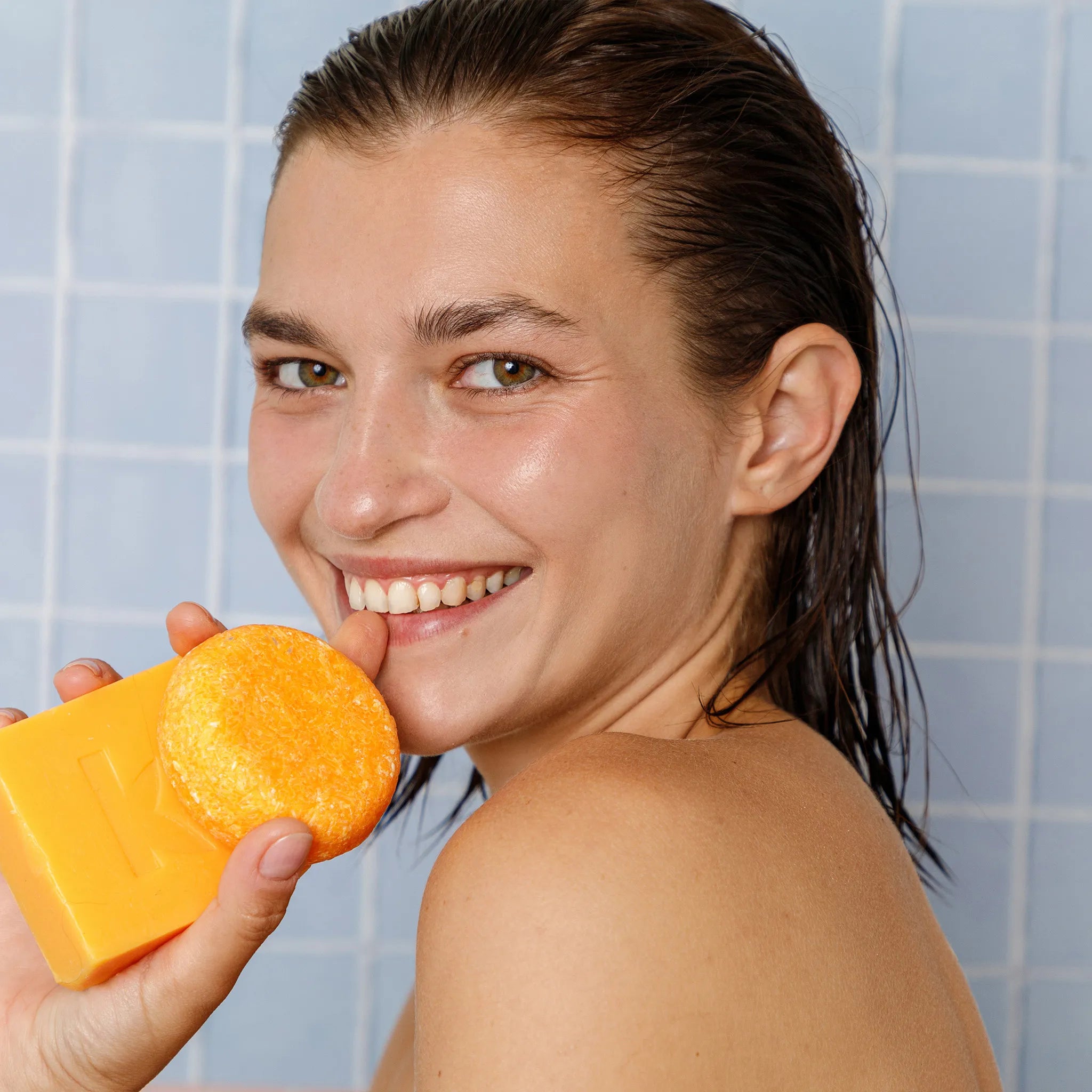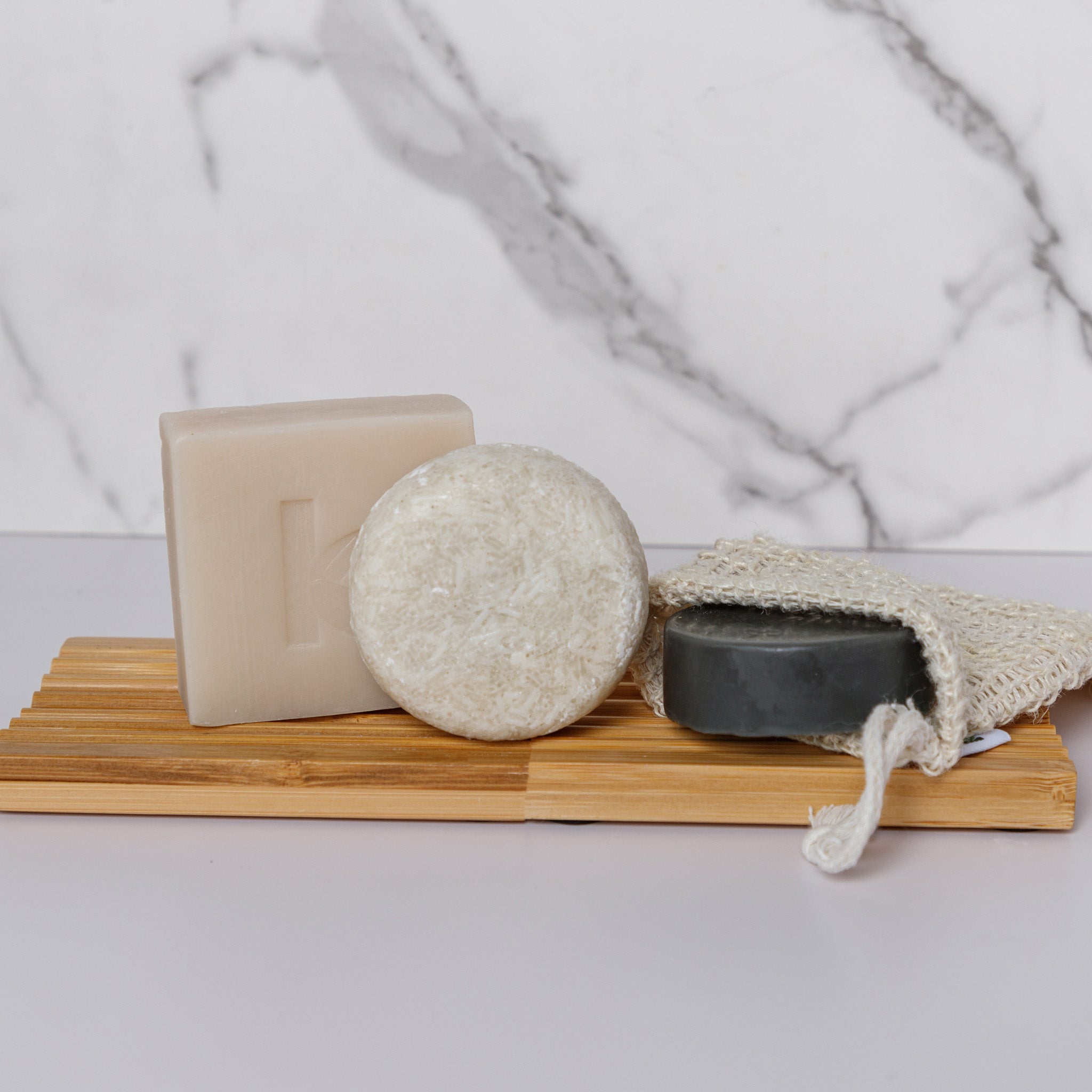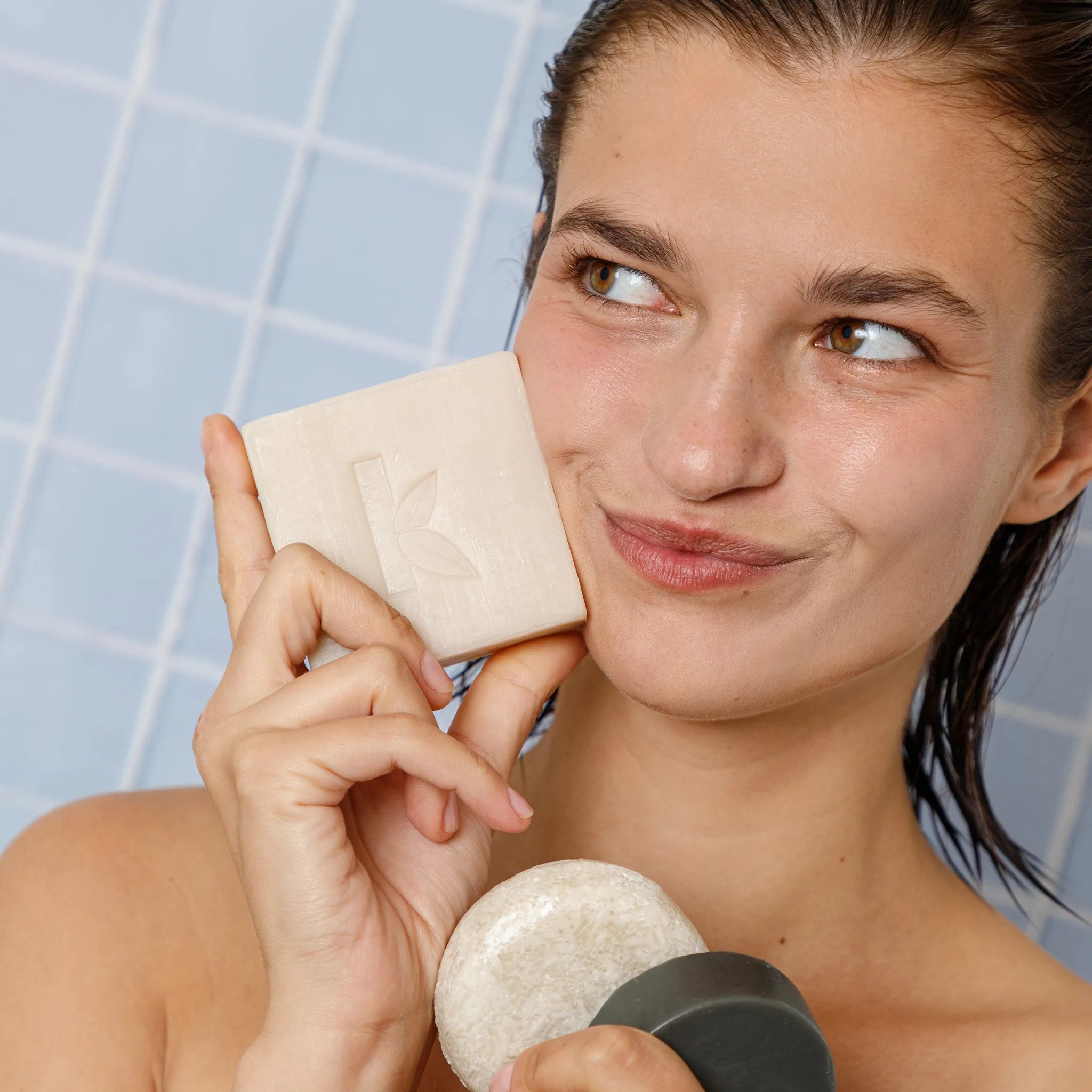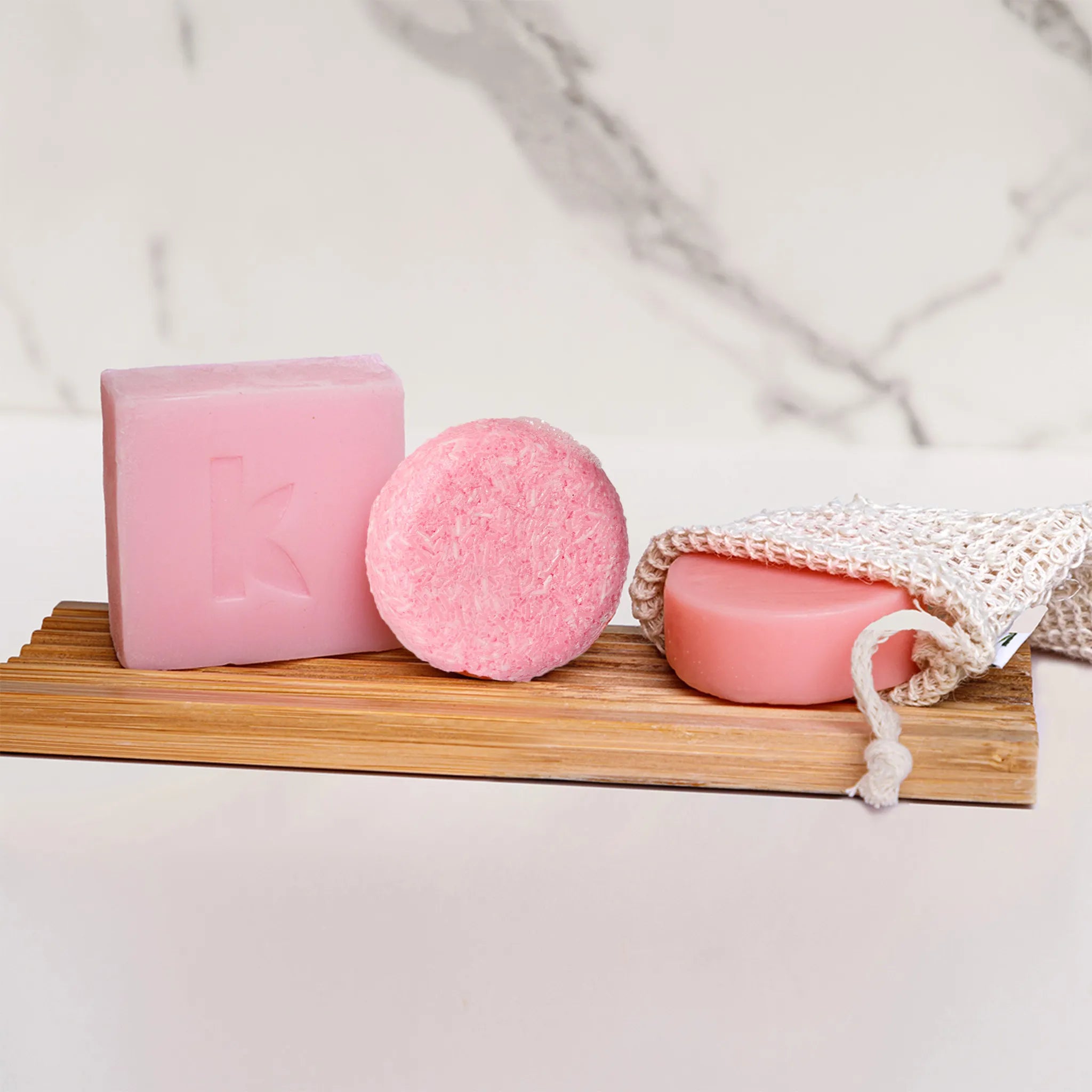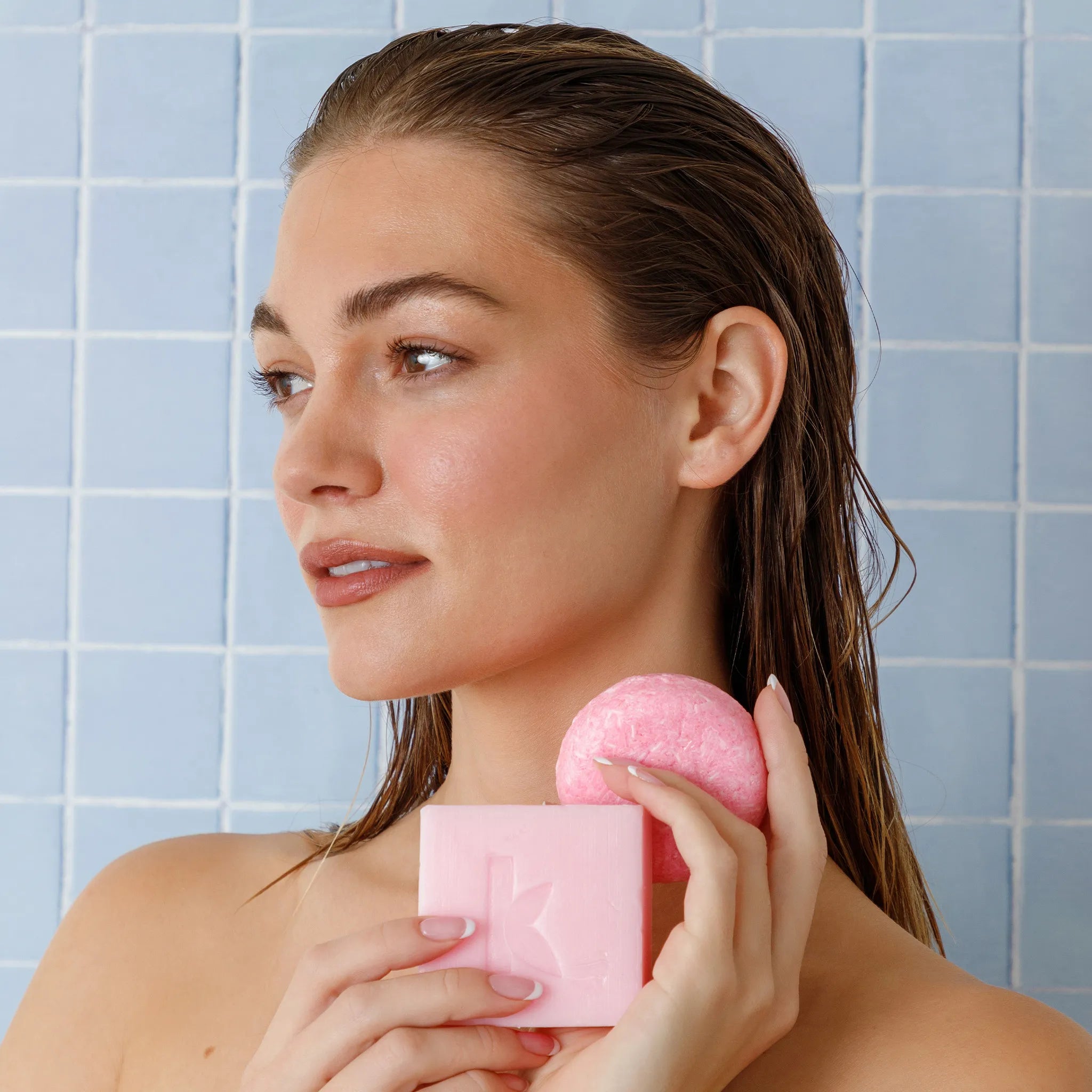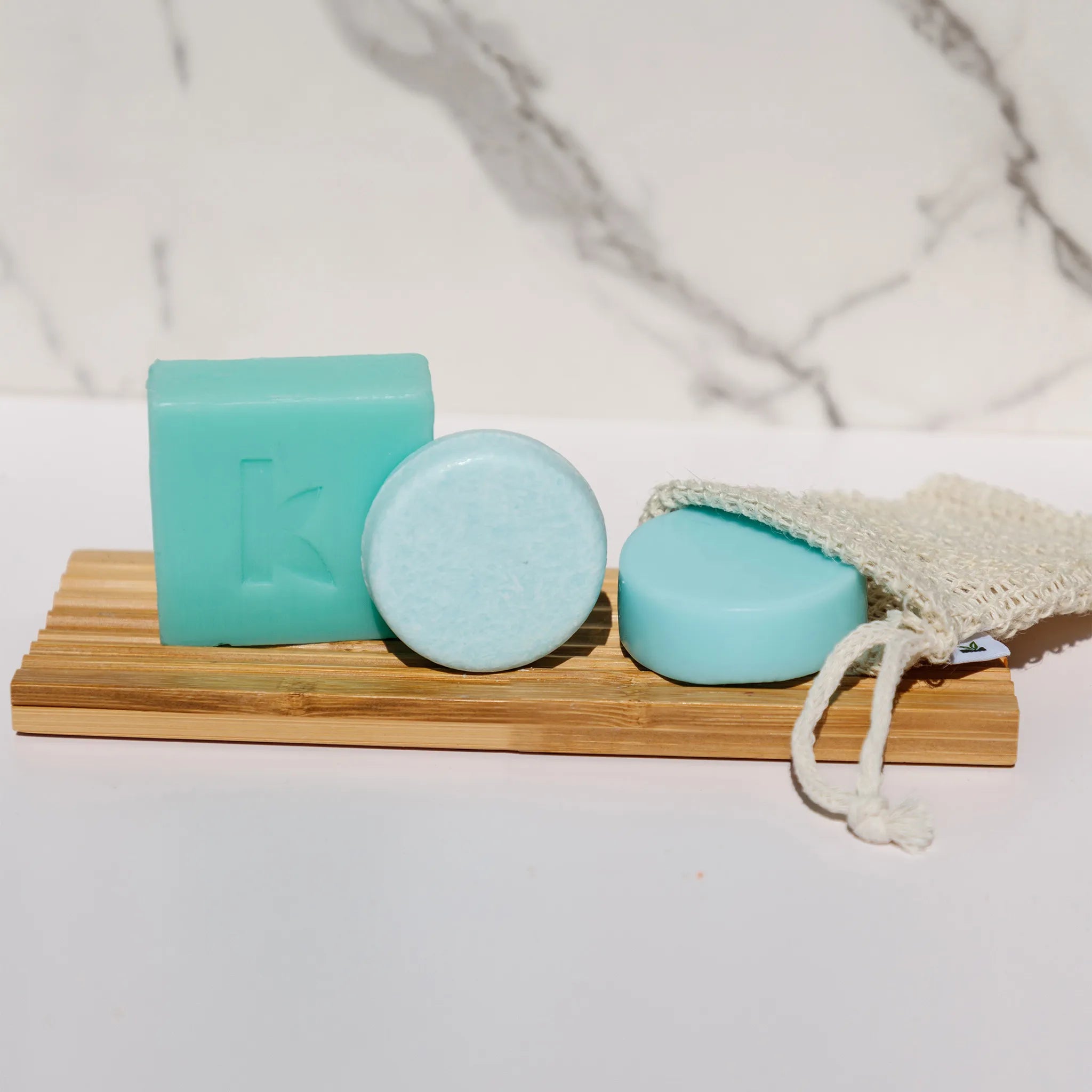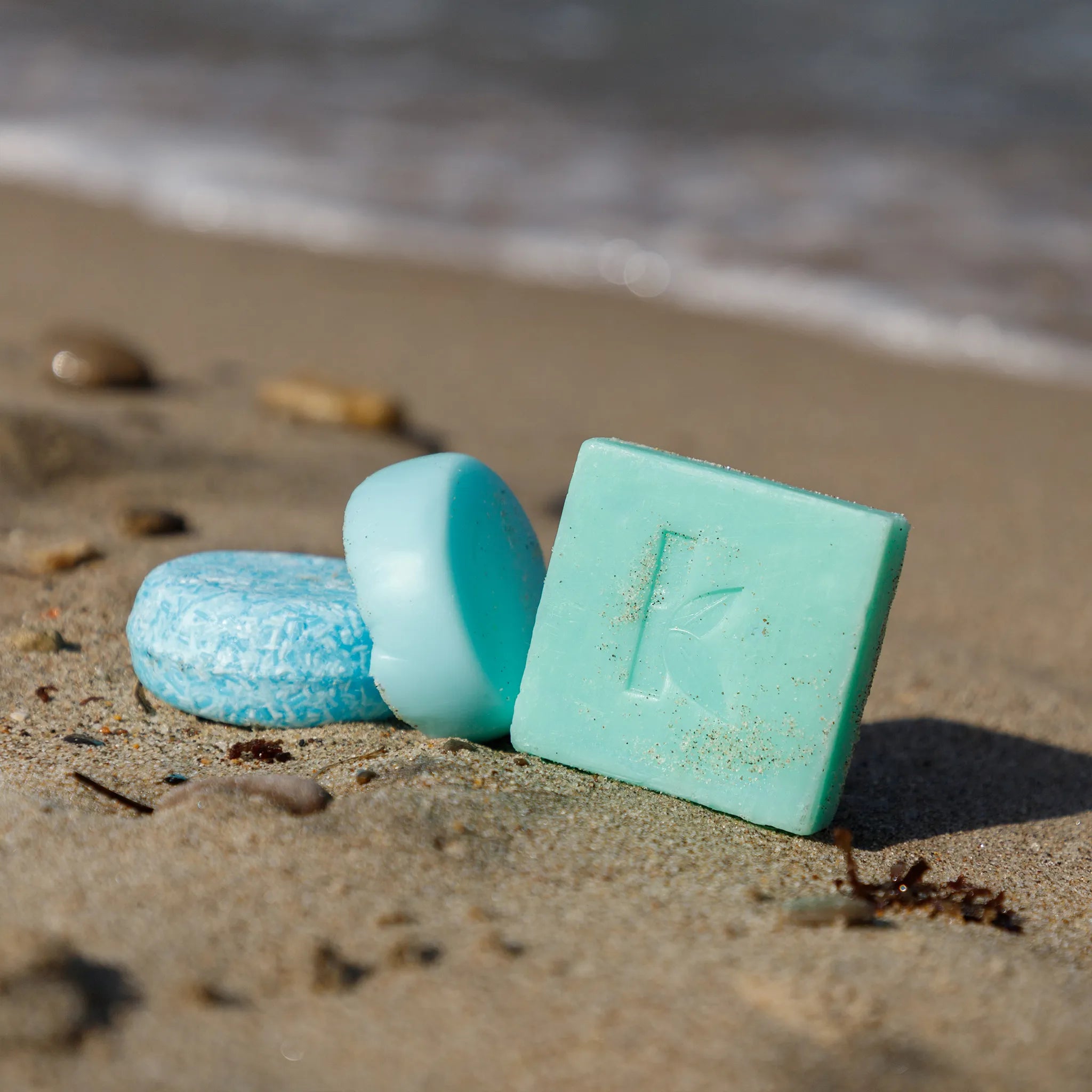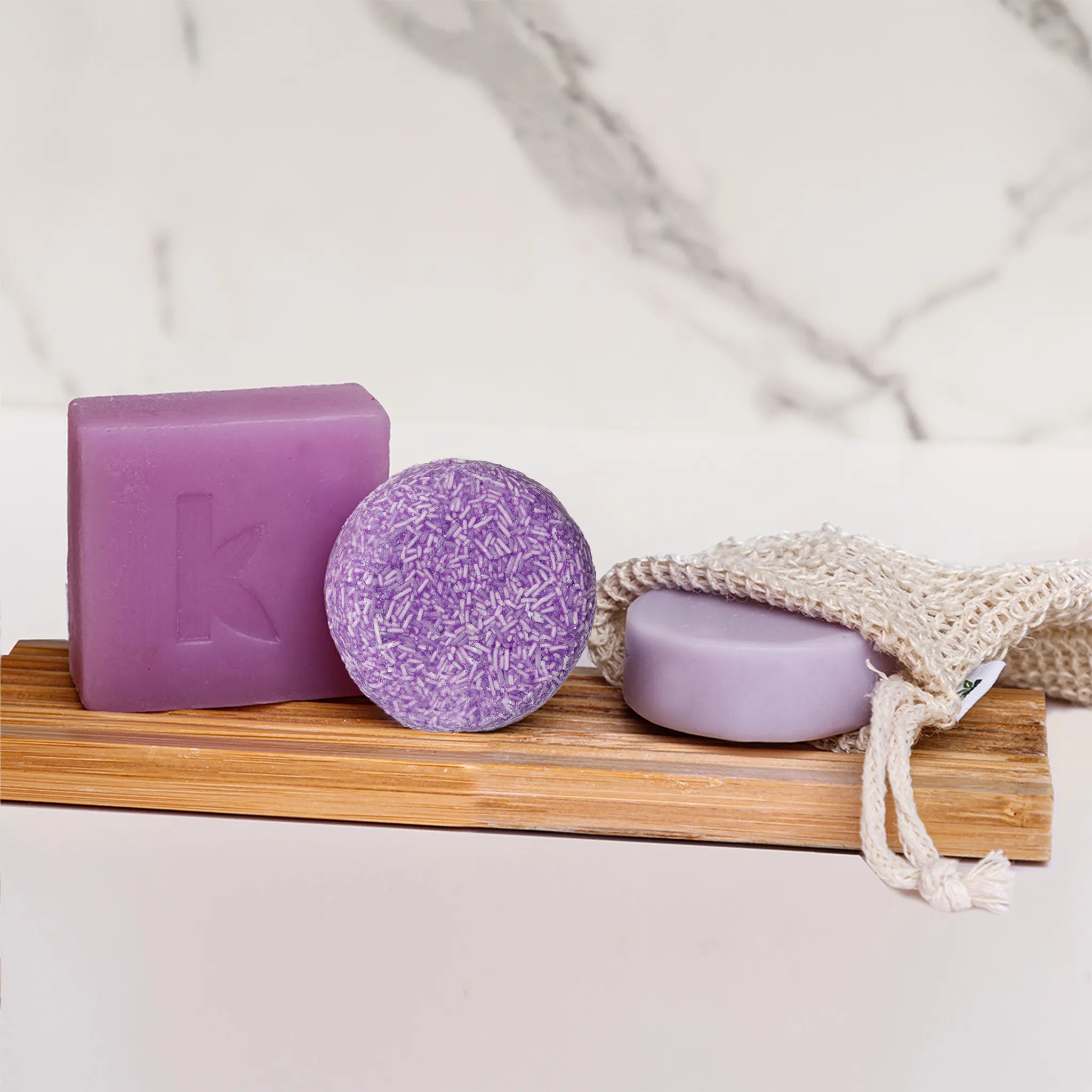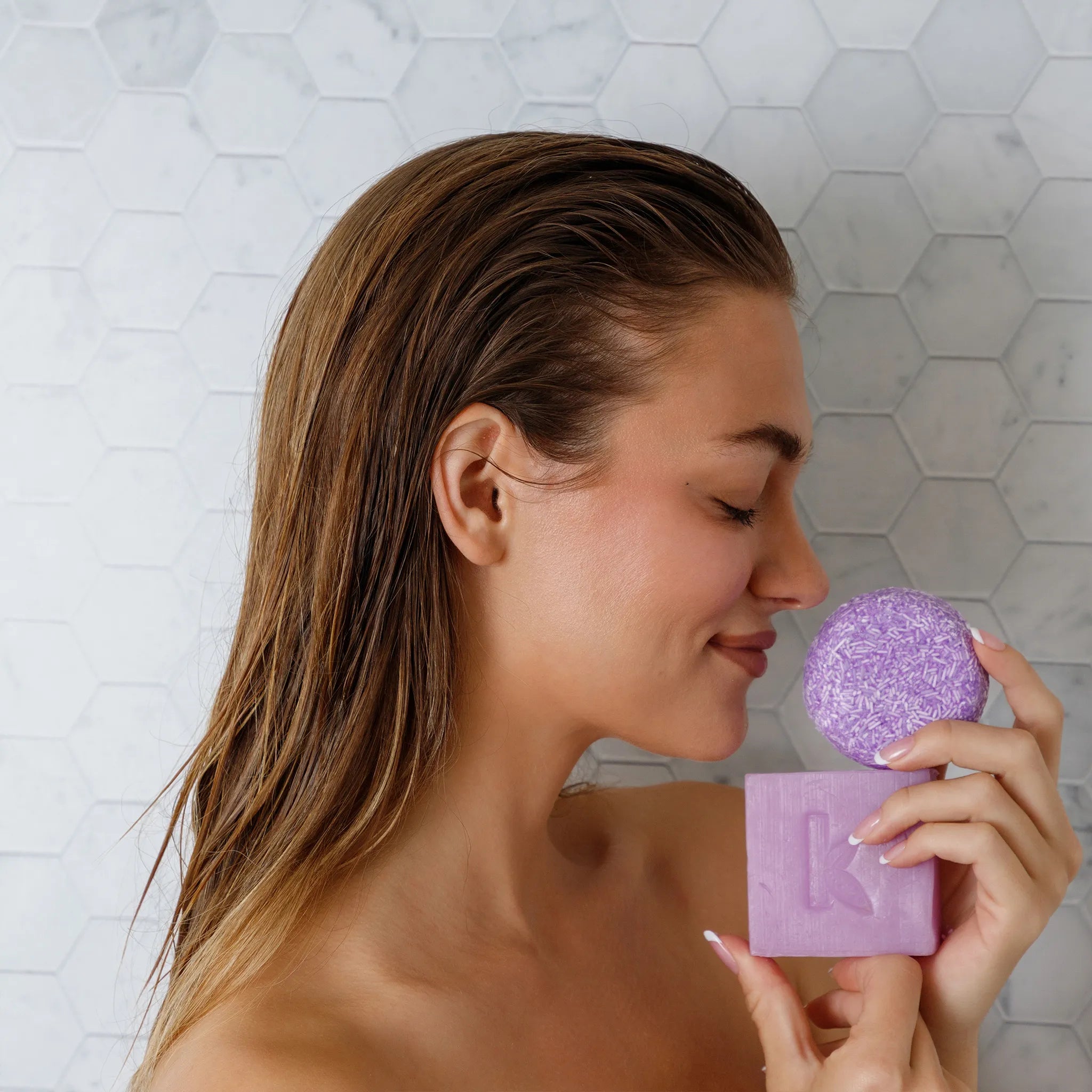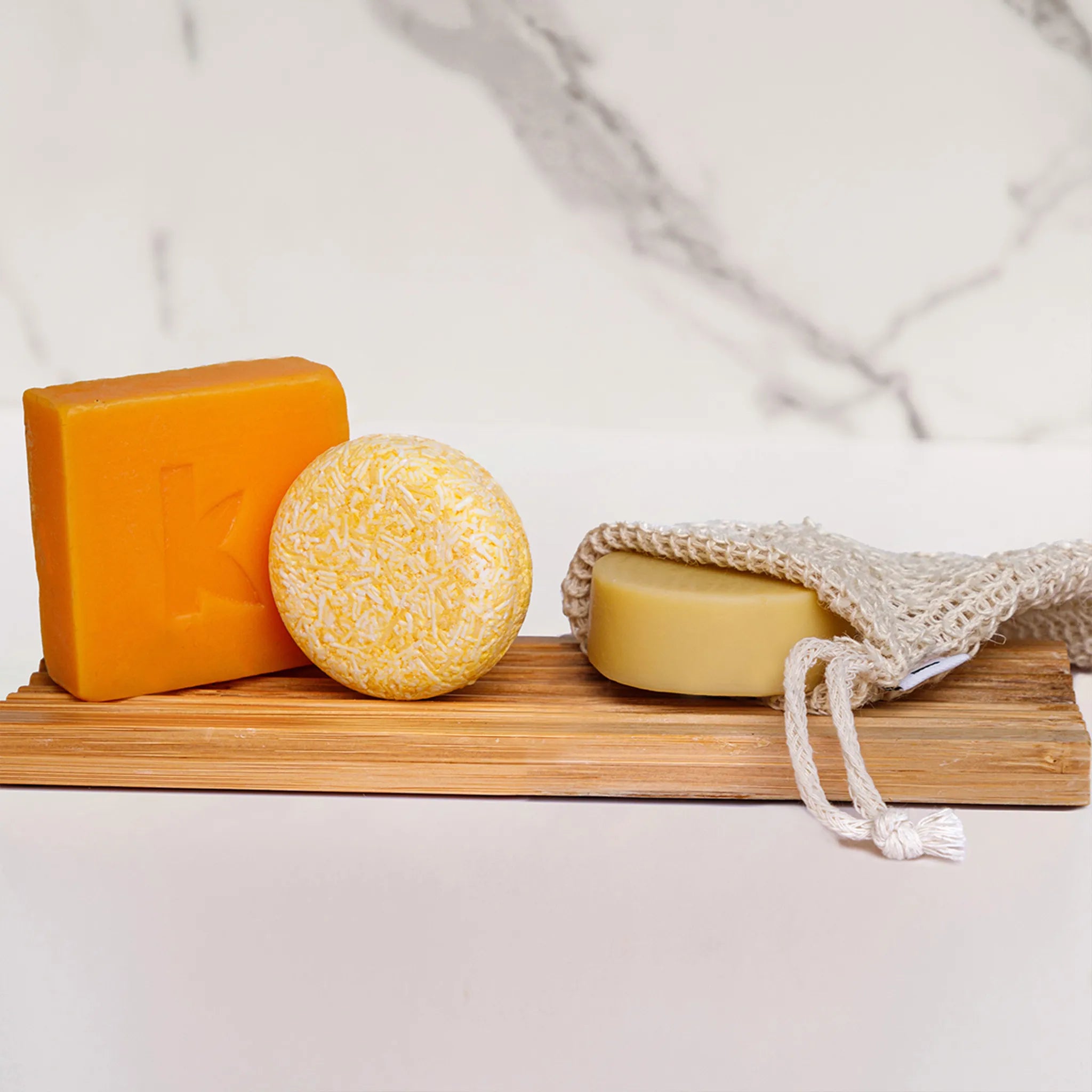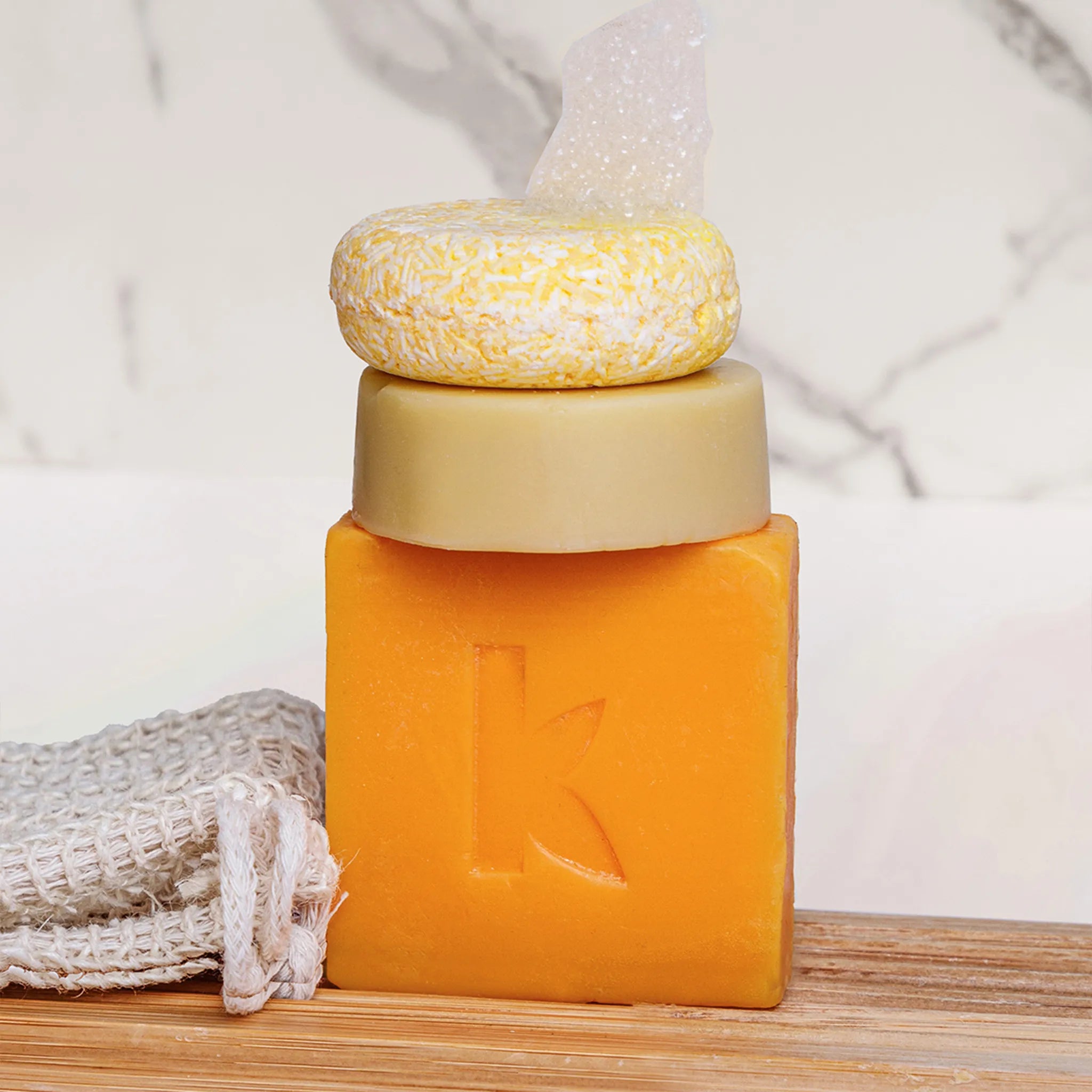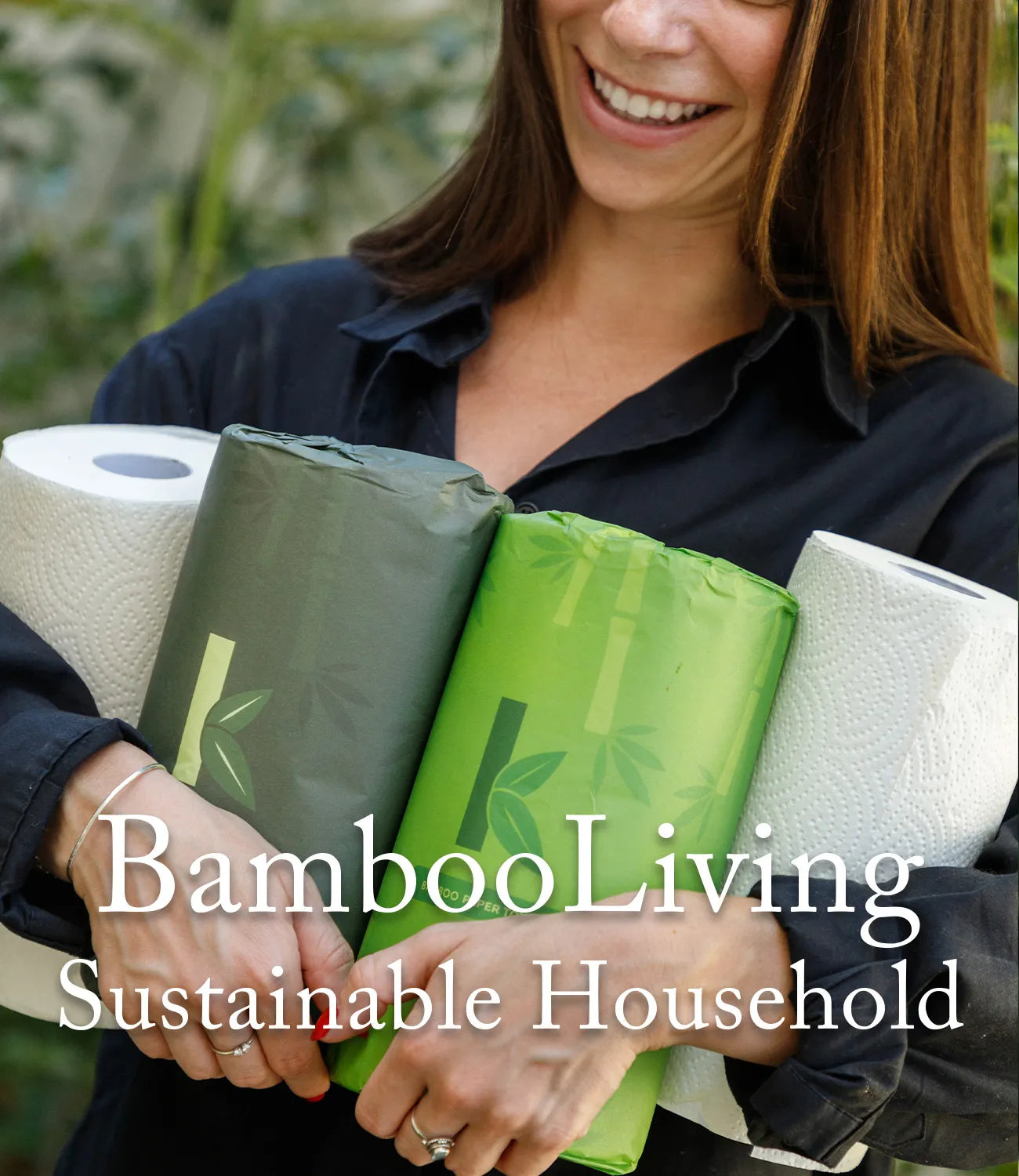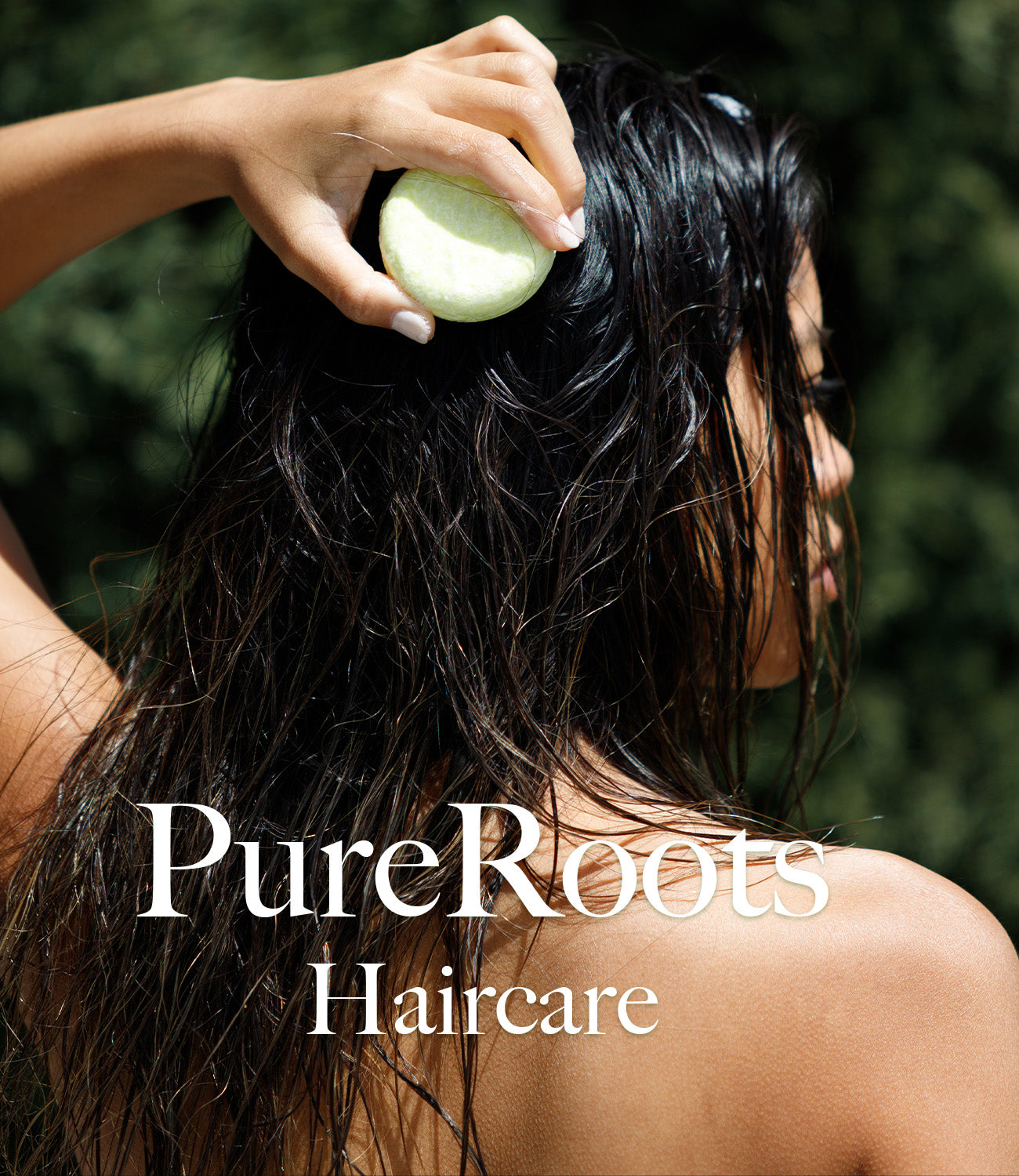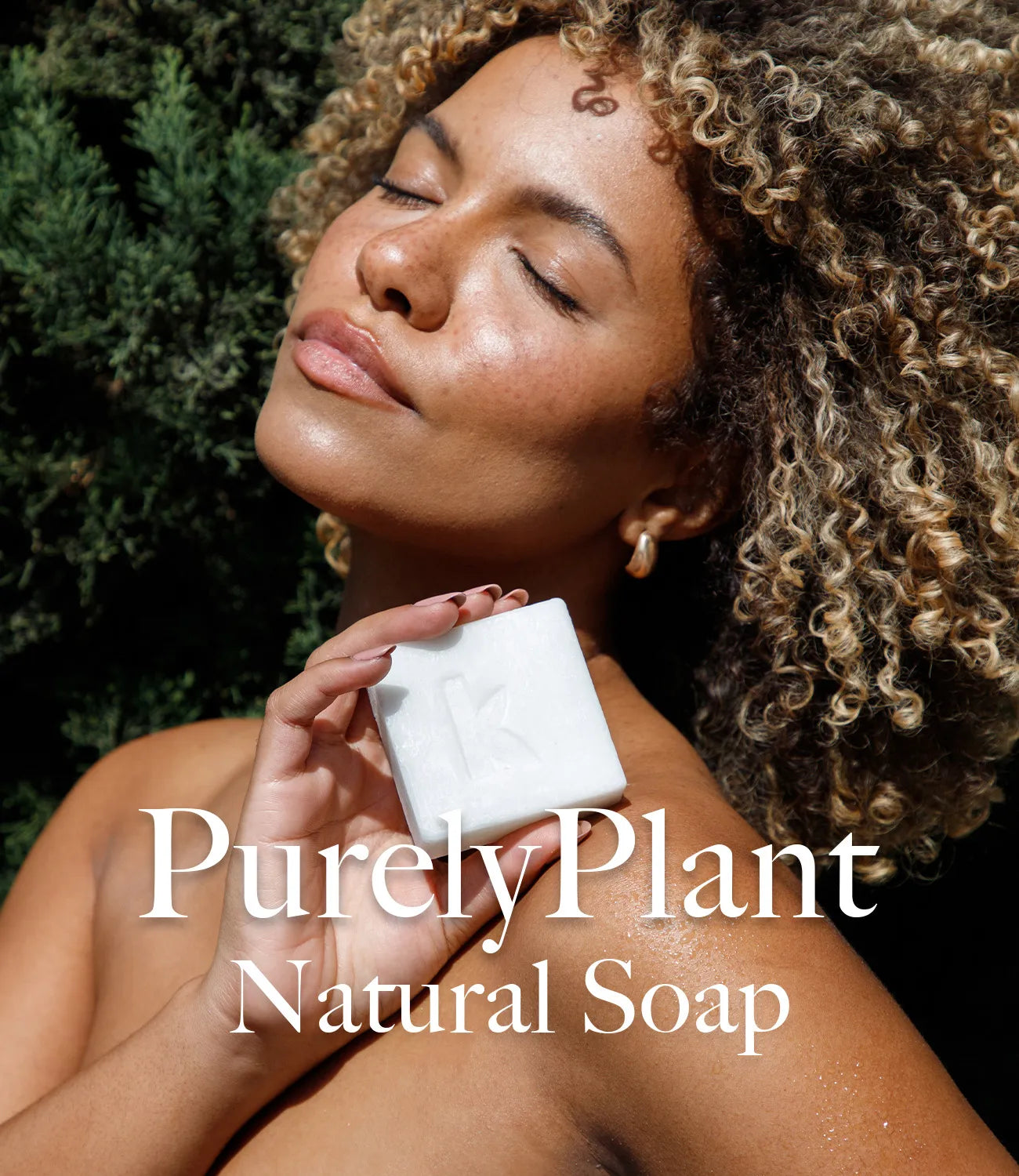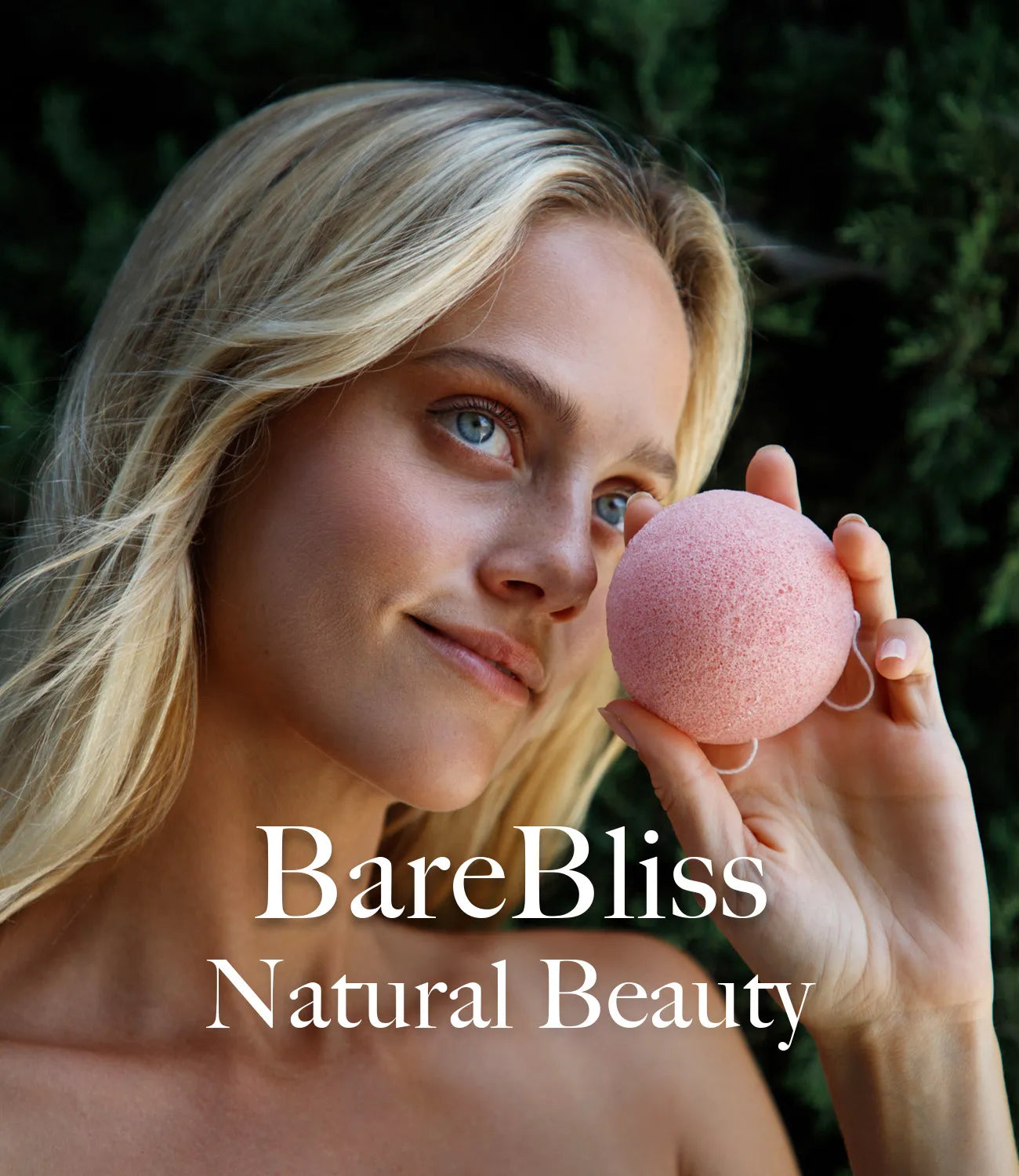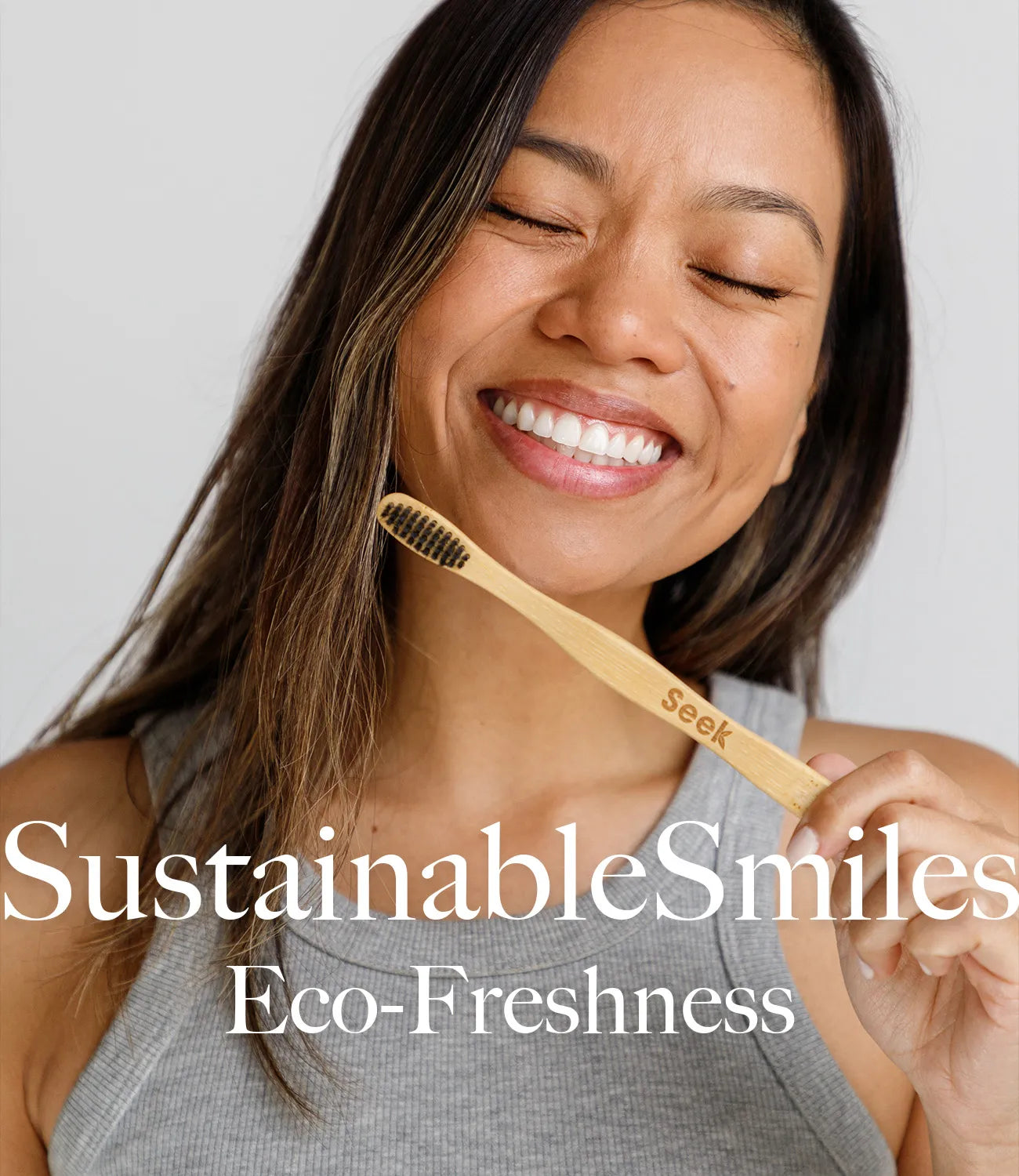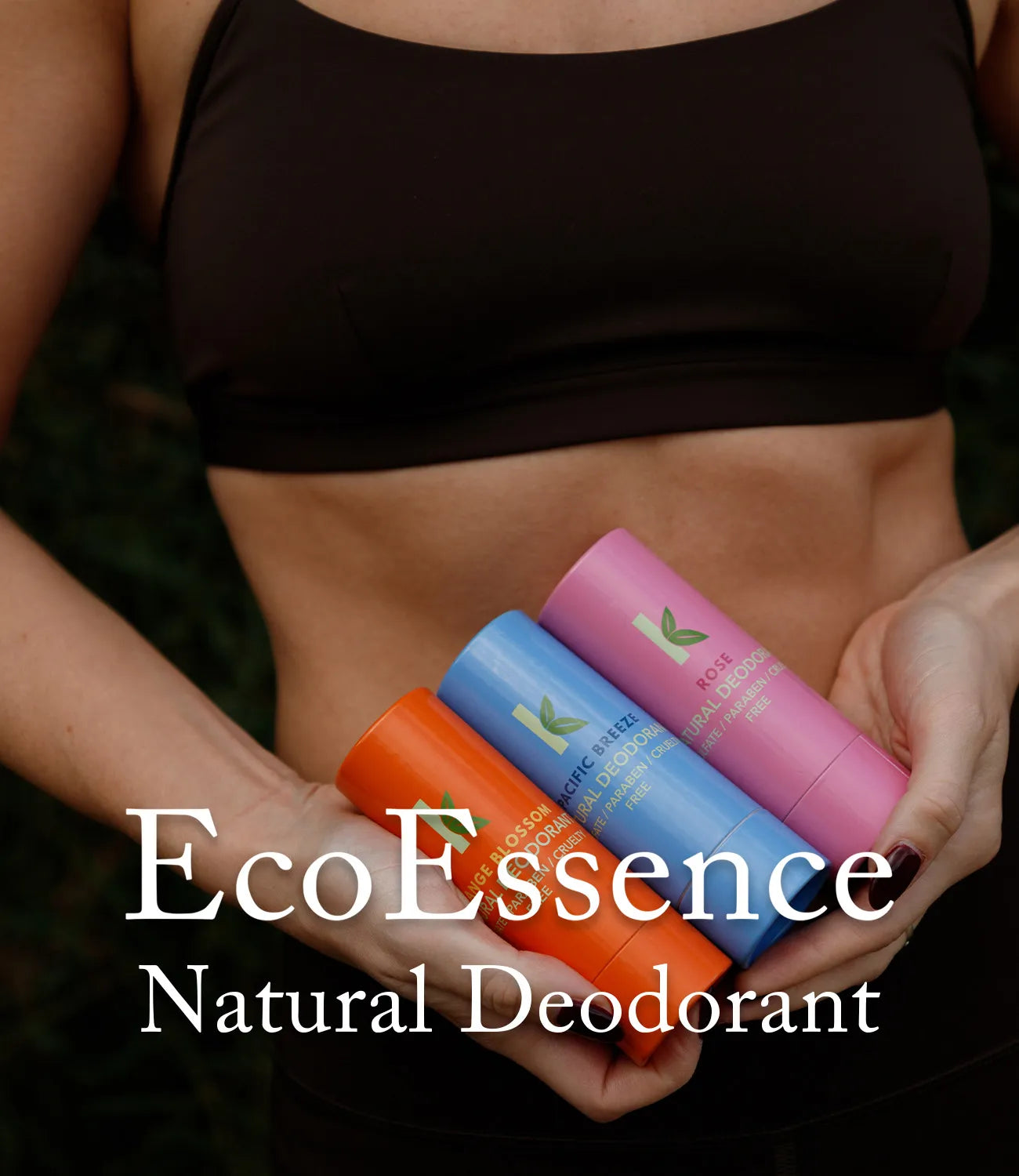Why Shampoo Bars are Good for Dandruff
Dealing with dandruff can be frustrating, but choosing the right shampoo can make all the difference. While many traditional dandruff shampoos are packed with harsh chemicals that may dry out or irritate your scalp, natural shampoos provide a gentler, more soothing alternative. Made with carefully selected plant-based ingredients, these shampoos not only help target the root causes of dandruff but also nourish and hydrate your scalp without stripping it of its natural oils. In this blog, we'll explore the benefits of using natural shampoos to combat dandruff and why they may be the best choice for a healthier, flake-free scalp.
What Causes Dandruff?
Dandruff is a common scalp condition characterized by the shedding of dead skin cells, resulting in visible flakes on your scalp and hair. It is often accompanied by itching and sometimes redness or irritation. While dandruff is not usually a serious condition, it can be uncomfortable and embarrassing. Understanding the causes and symptoms of dandruff can help you find the right treatment, including natural solutions like our shampoo bars.
Several factors contribute to the development of dandruff. Here are some of the most common causes:
- Dry Scalp: One of the simplest causes of dandruff is a dry scalp. When your scalp loses moisture, it can lead to the production of small, dry flakes. Cold weather or using harsh shampoos can exacerbate this condition, making it more noticeable.
- Seborrheic Dermatitis: This is a more severe form of dandruff, often associated with greasy, yellowish flakes and inflammation. Seborrheic dermatitis is caused by an overgrowth of yeast on the scalp, which irritates the skin. This condition can occur in other areas of the body where oil glands are abundant, such as the eyebrows, sides of the nose, and chest.
- Malassezia Yeast Overgrowth: Malassezia is a naturally occurring fungus found on everyone’s scalp. However, when it grows excessively, it can cause irritation and an overproduction of skin cells, which leads to dandruff. This condition is often linked with seborrheic dermatitis.
- Sensitivity to Hair Products: Some people may develop dandruff due to an allergic reaction or sensitivity to certain ingredients found in hair care products, such as fragrances, parabens, or sulfates. This irritation can trigger itching, flaking, and redness on the scalp.
- Not Shampooing Enough: When you don't wash your hair frequently enough, oil, dead skin cells, and product buildup can accumulate on your scalp. This can result in the formation of dandruff. Regular washing can help reduce the buildup of oils and dead skin.
- Hormonal Changes and Stress: Hormonal fluctuations, such as those during puberty, pregnancy, or menopause, can make you more prone to dandruff. Stress is also a key factor, as it can weaken your immune system, making it harder for your body to control fungal overgrowth or inflammation on the scalp.
Common Symptoms of Dandruff
Dandruff symptoms can vary in severity, but the most common signs include:
- Flaky Scalp: The most visible symptom, dandruff causes small, white or yellowish flakes to fall from the scalp onto the hair and shoulders.
- Itching: A persistent itch on the scalp is a common symptom of dandruff, especially if seborrheic dermatitis is present.
- Dry or Oily Scalp: Depending on the cause, dandruff may appear with a dry scalp (flaky, scaly) or an oily scalp (greasy flakes). Oily dandruff is often associated with seborrheic dermatitis.
- Redness or Irritation: In cases of severe dandruff, you might experience irritation or redness on the scalp, especially around the hairline or behind the ears.
By identifying the cause and symptoms of dandruff, you can choose the right treatment that addresses your specific needs. Natural shampoos, like those made with tea tree oil, aloe vera, and jojoba oil, can help manage dandruff effectively, soothing the scalp and addressing the root causes of flaking and irritation.
Benefits of Using Natural Ingredients for Dandruff
When it comes to treating dandruff, many conventional shampoos are loaded with chemicals that can irritate or dry out the scalp. Harsh ingredients such as sulfates, parabens, and synthetic fragrances may temporarily clean the scalp but can also strip away its natural oils, leading to dryness, increased flaking, and further scalp irritation. In contrast, natural ingredients offer a gentler, more sustainable approach to dandruff treatment. Here’s why natural ingredients in shampoo bars are beneficial for your scalp:
Soothes and Hydrates the Scalp
Natural ingredients like aloe vera, coconut oil, and jojoba oil are deeply hydrating and soothing. These oils and extracts help moisturize and nourish the scalp without disrupting its natural oil balance. By replenishing moisture, natural shampoos can help prevent dryness, one of the main causes of dandruff. Aloe vera, for example, has anti-inflammatory properties that calm irritated skin, making it an ideal choice for those with sensitive scalps or conditions like seborrheic dermatitis.
Free from Harsh Chemicals
Unlike traditional shampoos, which often contain sulfates, parabens, and synthetic fragrances, natural shampoos are free from harsh chemicals that can damage the scalp and hair. Sulfates, for instance, are detergents used to create lather, but they can strip the scalp of its natural oils, leading to dryness and irritation. By choosing a natural shampoo bar, you ensure that your scalp is being treated with only the gentlest, most nourishing ingredients.
Antifungal and Antibacterial Properties
Natural ingredients such as tea tree oil, neem, and apple cider vinegar are well-known for their antifungal and antibacterial properties. These ingredients help target the root cause of dandruff, particularly when it is linked to fungal overgrowth, such as Malassezia yeast. Tea tree oil, for example, has been proven to reduce fungal growth on the scalp, helping to manage dandruff caused by fungal imbalances. Apple cider vinegar can also help restore the scalp's pH balance, creating an environment where fungi and bacteria are less likely to thrive.
Balances Scalp Oil Production
An oily scalp can contribute to dandruff, particularly if seborrheic dermatitis is the cause. Natural ingredients like rosemary oil and peppermint oil help regulate oil production without stripping the scalp of its necessary moisture. These oils help balance the scalp’s oil levels, preventing both dryness and excessive oil, which can lead to flakiness. Regular use of natural shampoos helps maintain a healthy balance, promoting a flake-free, hydrated scalp.
Gentle for Sensitive Skin
For those with sensitive skin or conditions like eczema or psoriasis, natural shampoos are a great option. Ingredients like chamomile, lavender, and aloe vera are known for their calming properties, helping to reduce redness, irritation, and itching associated with dandruff. By choosing a natural shampoo, you minimize exposure to synthetic chemicals that could trigger allergic reactions or worsen scalp conditions.
Sustainable and Eco-Friendly
Beyond their benefits for your scalp, natural ingredients in shampoo bars are also better for the environment. Many natural ingredients are sustainably sourced and biodegradable, which means you’re not only helping your scalp but also reducing your environmental footprint. Unlike plastic bottles that contribute to waste, shampoo bars typically come in eco-friendly packaging, offering a greener, zero-waste solution for dandruff care.
Long-Term Scalp Health
When used regularly, natural ingredients support the long-term health of the scalp. Unlike chemical-laden products that may offer short-term results but can ultimately damage the scalp, natural shampoos work with your body’s natural systems to promote balance and health. Over time, your scalp can become less prone to irritation, dryness, and flaking, allowing you to enjoy a dandruff-free, comfortable scalp for the long haul.
Natural Ingredients That Fights Dandruff
When choosing a shampoo to combat dandruff, the right ingredients can make all the difference. Natural ingredients not only target the root causes of dandruff but also provide relief from itching, irritation, and flaking. Here are some key ingredients to look for in a dandruff shampoo, and how they can help restore a healthy, balanced scalp.
Tea Tree Oil: Antifungal and Antimicrobial Power
Tea tree oil is one of the most effective natural ingredients for treating dandruff, thanks to its potent antifungal and antimicrobial properties. It helps to fight the overgrowth of Malassezia yeast, a fungus that is often responsible for dandruff, especially in cases of seborrheic dermatitis. By reducing the yeast population on the scalp, tea tree oil can significantly alleviate itching, flaking, and scalp irritation.
In addition to its antifungal action, tea tree oil also helps to cleanse the scalp by removing excess oil and buildup. This makes it an excellent choice for people who have both oily hair and dandruff, as it promotes a clean, balanced scalp without being overly harsh.
Aloe Vera: Soothes and Hydrates the Scalp
Aloe vera is a highly versatile plant known for its soothing and hydrating properties. It’s especially beneficial for people with dandruff caused by dry scalp or scalp irritation. Aloe vera helps to calm itching and redness, while deeply hydrating the scalp without making it greasy. This moisture balance is crucial for preventing dandruff, as both a dry scalp and excessive oiliness can lead to flakiness.
Aloe vera also contains enzymes that can help remove dead skin cells from the scalp, promoting a healthier scalp environment. Its anti-inflammatory effects help reduce irritation and swelling, making it an ideal ingredient for anyone with sensitive skin or conditions like eczema or psoriasis.
Jojoba Oil: Balances Scalp Oil Production
Jojoba oil is a natural moisturizer that closely resembles the scalp’s own sebum, the oil produced by hair follicles. This similarity makes jojoba oil highly effective at regulating oil production. For those with dandruff caused by an oily scalp, jojoba oil helps balance sebum levels, preventing the scalp from becoming too greasy or too dry.
In addition to balancing oil production, jojoba oil also provides hydration without clogging pores. This allows it to nourish the scalp without causing breakouts or exacerbating oiliness. It also helps to detoxify the scalp by removing impurities and buildup, keeping the follicles clean and healthy, which is essential for dandruff prevention.
Apple Cider Vinegar: Balances Scalp pH and Removes Buildup
Apple cider vinegar (ACV) is a powerful ingredient known for its ability to balance scalp pH and remove buildup. The acidic nature of ACV helps to restore the scalp’s natural pH level, which may be disrupted by the use of harsh shampoos or an oily scalp. A balanced pH is essential for maintaining a healthy scalp environment, which can reduce the growth of dandruff-causing yeast.
In addition to its pH-balancing effects, apple cider vinegar acts as a natural clarifier, effectively removing product buildup, dead skin cells, and excess oils that can contribute to dandruff. It also helps to close hair cuticles, which promotes smooth, shiny hair while preventing further dryness or irritation.
The acidity of apple cider vinegar can help cleanse the scalp deeply without the need for harsh chemicals. It also has antibacterial properties, helping to fight off potential scalp infections that could worsen dandruff.
How to Use Dandruff Shampoo Effectively
Using natural shampoo bars to treat dandruff can be highly effective, but proper application and a consistent routine are key to seeing the best results. Here are some tips to help you use dandruff shampoo effectively and maximize its benefits, along with additional lifestyle and hair care practices that can further help manage and reduce dandruff.
Wet Your Hair and Scalp Thoroughly
Before applying your shampoo bar, ensure that your hair and scalp are completely wet. Wetting your hair thoroughly helps to activate the ingredients in the shampoo bar, allowing it to lather and clean your scalp more effectively. If your hair is particularly long or thick, consider working in sections to ensure the shampoo reaches all areas of your scalp.
Lather the Shampoo Bar in Your Hands or Directly on the Scalp
You can either rub the shampoo bar between your hands to create a lather, or gently rub the bar directly onto your wet scalp. If you choose to rub the bar on your scalp, move it in small circular motions to ensure an even distribution of the shampoo.
The key to using shampoo bars is not overloading the hair with too much product. A little goes a long way, and most natural shampoo bars are highly concentrated. Start with a small amount, then gradually add more if needed.
Massage the Shampoo Into the Scalp
Massaging your scalp is one of the most important steps in using dandruff shampoo effectively. Take the time to gently massage the lather into your scalp for at least 1–2 minutes. This action serves multiple purposes:
- Stimulates blood circulation, promoting healthier hair growth.
- Helps distribute the shampoo evenly, ensuring every part of your scalp is treated.
- Loosens dead skin cells, which can help to reduce the buildup of dandruff flakes.
Avoid scrubbing too hard, as this can irritate the scalp and worsen dandruff. A gentle, circular motion will help cleanse without causing damage.
Rinse Thoroughly with Lukewarm Water
After massaging the shampoo into your scalp, rinse it out thoroughly with lukewarm water. It's important to avoid using hot water, as it can strip the scalp of its natural oils and cause dryness, leading to more flakes. Lukewarm water will help cleanse your scalp without causing unnecessary irritation or imbalances.
Avoid Overwashing
Overwashing your hair can actually worsen dandruff. Shampooing too frequently can strip your scalp of its natural oils, leading to dryness or an overproduction of oil, both of which can contribute to dandruff. Stick to washing your hair 2–3 times a week, depending on your scalp’s needs. If you have particularly oily hair or dandruff, you might need to wash it more often, but always try to avoid daily washing.
Follow Up with a Gentle Conditioner (if Needed)
While not always necessary, a gentle conditioner can help maintain moisture and prevent dryness after using a dandruff shampoo. If you find that your scalp or hair feels dry after washing, choose a natural conditioner that complements your shampoo bar and hydrate the hair without weighing it down or contributing to buildup.
Use a Gentle Hairbrush or Comb
To prevent further scalp irritation, choose a gentle hairbrush or wide-toothed comb to detangle your hair. Avoid using brushes with harsh bristles that can scratch and irritate your scalp. Brushing too vigorously can also cause scalp inflammation, which may exacerbate dandruff. Use soft bristles or a wide-toothed comb to work through your hair slowly and gently.
Additional Lifestyle Tips for Managing Dandruff
In addition to using your dandruff shampoo bar effectively, there are other lifestyle changes and hair care practices that can help manage dandruff and promote a healthier scalp:
- Avoid Hot Water
As mentioned earlier, hot water can strip the scalp of its natural oils, leading to dryness and flakiness. Always opt for lukewarm water when washing your hair to maintain a balanced, hydrated scalp.
- Keep Stress Levels Low
Stress is a major factor that can trigger dandruff flare-ups or worsen existing dandruff. When you’re stressed, your body’s immune system is compromised, which can increase inflammation and irritate the scalp. Incorporating stress-relieving practices like meditation, yoga, or deep breathing can have a positive impact on your scalp health.
- Eat a Balanced Diet
A healthy diet rich in vitamins and minerals can also help support scalp health. Foods high in omega-3 fatty acids, zinc, and B vitamins can help reduce inflammation and promote healthy hair and scalp. Stay hydrated, and avoid too much sugar or greasy foods, as they can sometimes trigger scalp issues.
- Avoid Harsh Hair Products
Hair products that contain sulfates, parabens, or synthetic fragrances can irritate the scalp and worsen dandruff. Choose hair care products that are free from these harsh chemicals, and opt for natural shampoos and conditioners that provide gentle, effective treatment without unnecessary additives.
- Protect Your Scalp from the Sun
Excessive sun exposure can cause scalp dryness and irritation. If you’re spending time in the sun, consider wearing a hat or using a natural sunscreen to protect your scalp from harmful UV rays. This is particularly important for people with thinning hair or sensitive scalps.
Conclusion:
By following these simple yet effective tips for using your natural dandruff shampoo bar, you can improve the health of your scalp and reduce dandruff over time. Remember, consistency is key—regular use, combined with the right hair care practices, will yield the best results. Additionally, adopting a healthy lifestyle that addresses factors like stress, diet, and sun exposure can further support your dandruff treatment and help you achieve a flake-free, healthy scalp.
Say Goodbye to Dandruff with Natural Solutions
Dandruff may be a common issue, but it doesn’t have to control your hair care routine. With the right approach—using natural shampoo bars designed to treat dandruff and adopting simple lifestyle adjustments—you can take charge of your scalp health. By incorporating key ingredients like tea tree oil and aloe vera, you’ll help restore balance to your scalp while avoiding the irritation caused by harsh chemicals. With patience and the right care, you’ll soon be enjoying a flake-free scalp and hair that feels as good as it looks.
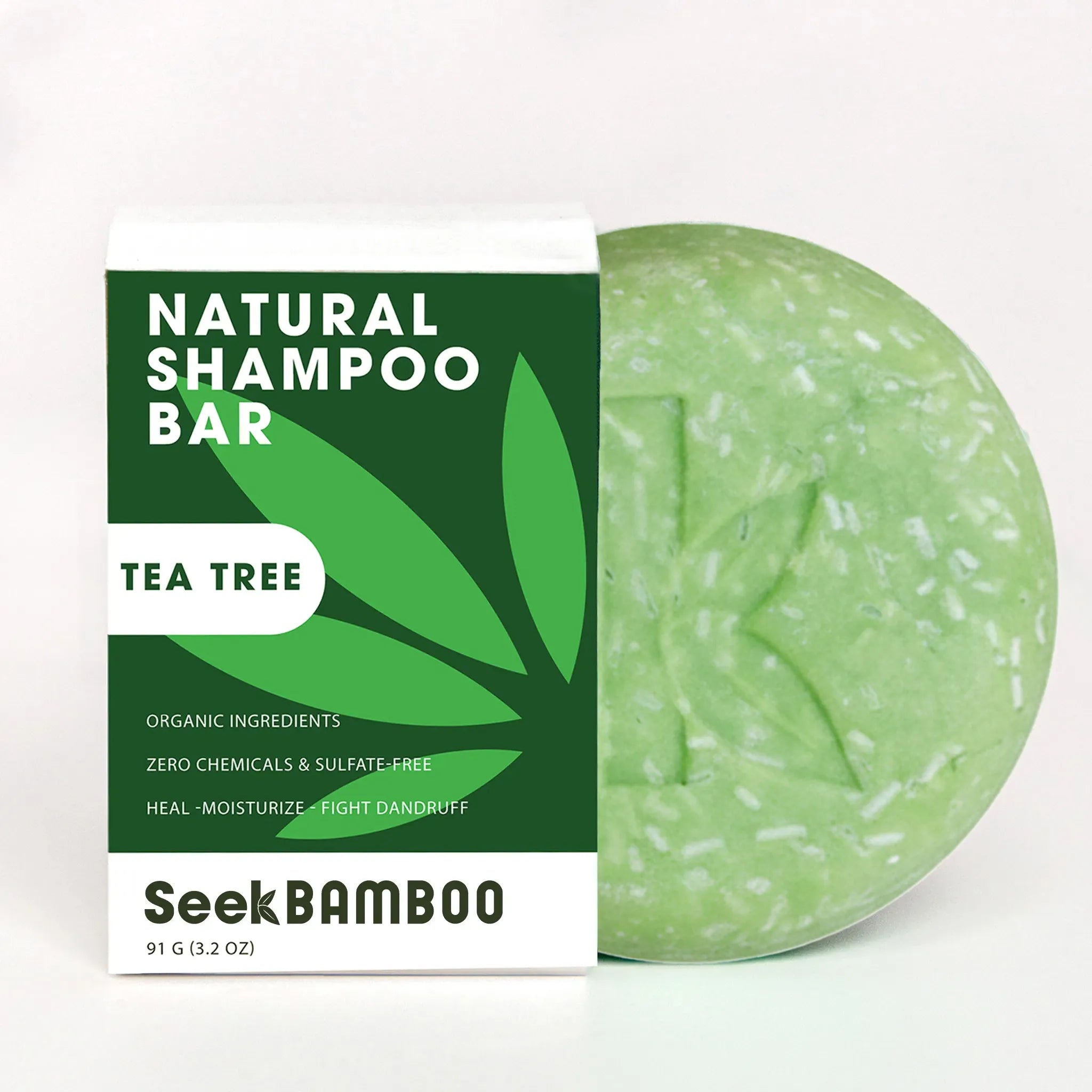
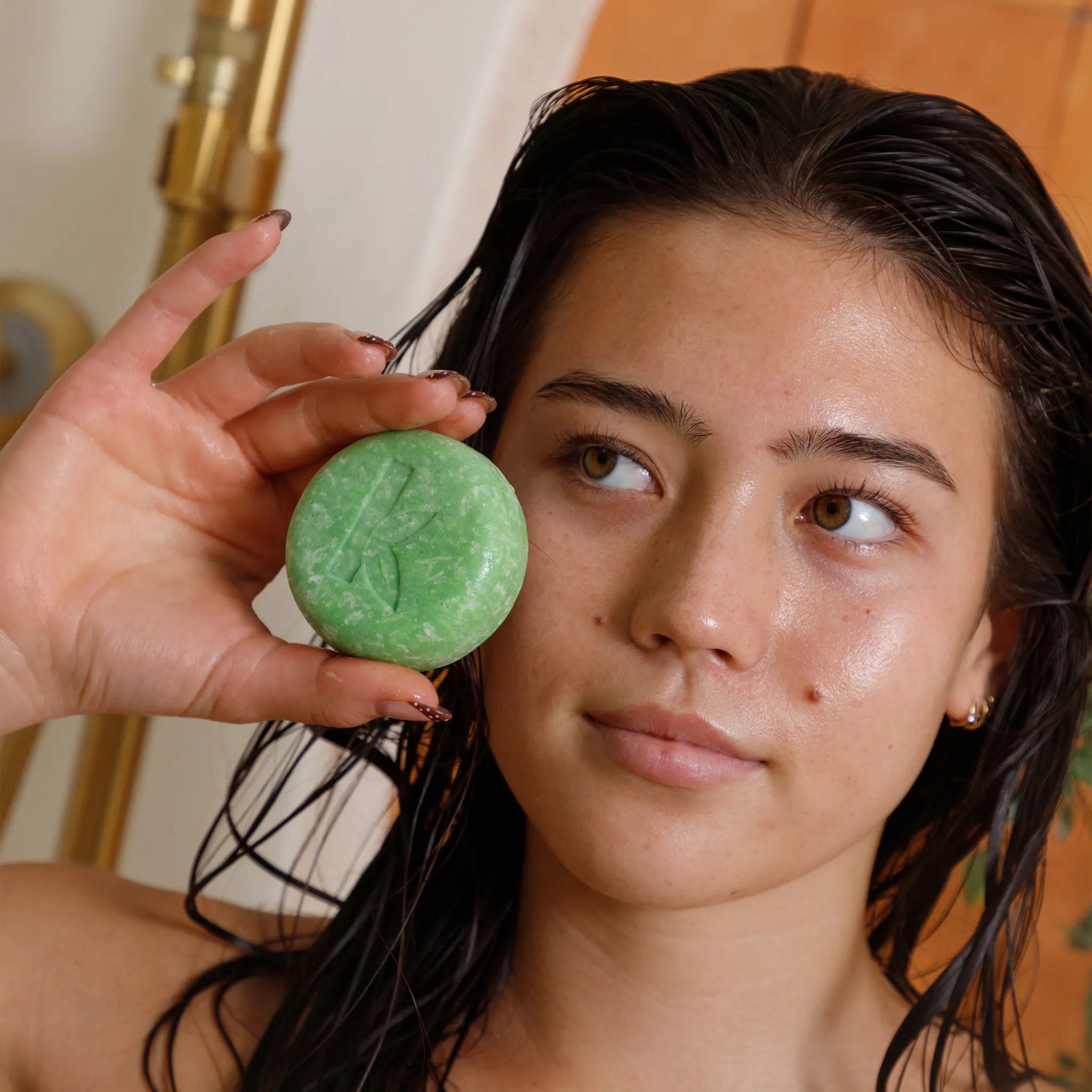

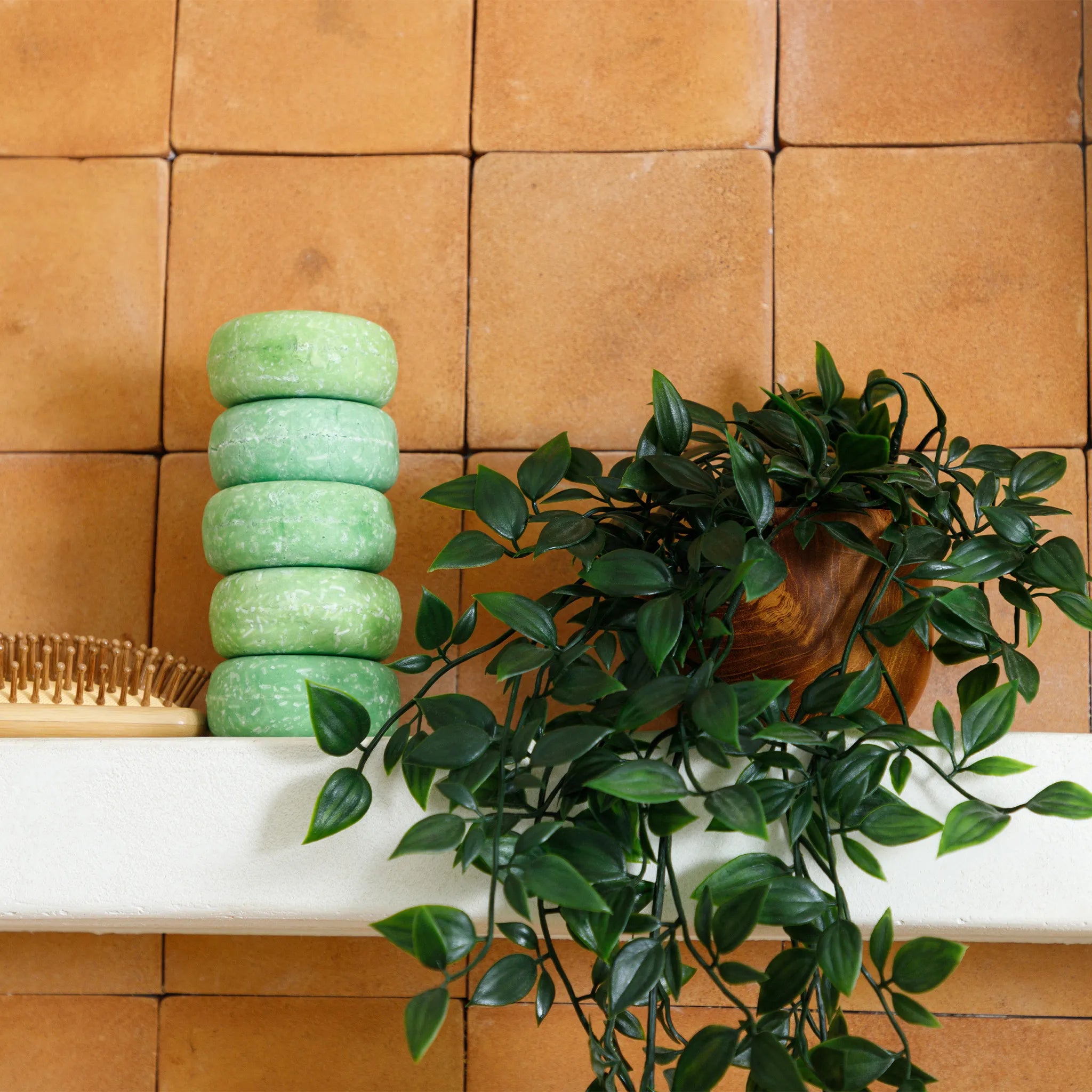



✓ Tea tree oil helps cleanse the scalp, reducing buildup and promoting a fresh, balanced environment for hair growth
✓ Known for its natural antibacterial and antifungal properties, tea tree oil helps soothe scalp irritation and reduce dandruff
✓ Larger 3.2 oz size lasts 70-90 washes, replacing up to 3 plastic bottles of shampoo
✓ Plastic-free and eco-friendly packaging, making it a sustainable choice for both your hair and the planet
✓ Free of sulfates, palm oil, parabens, dyes, & synthetic fragrances
Start Your Journey to a Healthy, Dandruff-Free Scalp Today
If you're ready to tackle your dandruff naturally, it's time to make the switch to shampoo bars made with the finest natural ingredients. These gentle yet effective formulas will provide the care your scalp needs to stay healthy, hydrated, and flake-free. Along with the right product, remember that proper scalp care, balanced nutrition, and stress management can all contribute to better scalp health. Begin your journey to a dandruff-free life today, and enjoy the confidence that comes with a healthy scalp and beautiful hair!
Natural Shampoo Bars
Flake-Free FAQs: Your Scalp's Guide to Relief!
Let’s clear up the confusion—no more itching, just answers!
What causes dandruff?
Dandruff is primarily caused by an overgrowth of Malassezia yeast, a fungus that naturally resides on the scalp. When this yeast grows excessively, it can lead to scalp irritation and flaking. Other causes of dandruff include dry scalp, seborrheic dermatitis (a skin condition), sensitive skin, poor hygiene, or even stress. Certain lifestyle factors, such as diet, hair care products, and environmental conditions, can also contribute to dandruff.
Why should I choose a natural shampoo bar for dandruff?
Natural shampoo bars are made with gentle ingredients that are less likely to irritate the scalp. Unlike conventional shampoos that contain harsh chemicals like sulfates and parabens, natural shampoo bars use ingredients like tea tree oil, aloe vera, and jojoba oil, which can soothe, hydrate, and balance the scalp. These ingredients address the root causes of dandruff—such as fungal imbalances and dry scalp—without stripping away the scalp's natural oils.
How do natural ingredients help with dandruff?
Natural ingredients, like tea tree oil, have powerful antifungal and antimicrobial properties, making them effective in combating dandruff caused by fungal overgrowth. Aloe vera soothes the scalp and provides hydration to dry, flaky skin. Jojoba oil balances oil production, while apple cider vinegar restores the scalp’s pH and removes buildup. These ingredients work together to create a healthier scalp environment, reducing irritation and flaking.
How often should I use a dandruff shampoo bar?
It’s important not to overuse dandruff shampoo, as frequent washing can strip the scalp of its natural oils. For most people, washing 2-3 times per week is sufficient. If your scalp is very oily or prone to significant dandruff, you might need to wash more often, but daily washing can exacerbate dandruff in the long run. Pay attention to your scalp’s needs and adjust accordingly.
Can I use a conditioner with a dandruff shampoo bar?
Yes, you can use a conditioner with your dandruff shampoo bar. If your scalp is dry or your hair feels brittle after using the shampoo, a gentle, natural conditioner can help restore moisture and prevent dryness. Make sure to choose a conditioner that complements your dandruff shampoo, ideally one free from harsh chemicals and heavy silicones.
Will natural shampoo bars completely eliminate my dandruff?
While natural shampoo bars can significantly reduce dandruff symptoms, complete elimination depends on various factors, including the severity of the condition, lifestyle habits, and diet. For most people, using a natural shampoo bar regularly, along with incorporating healthy scalp practices (like avoiding stress and eating a balanced diet), can manage dandruff effectively. If you have severe dandruff or a medical condition like seborrheic dermatitis, you may need additional treatment or consultation with a dermatologist.
How can I prevent dandruff from coming back?
To prevent dandruff from recurring, try to maintain a consistent scalp care routine. Use a natural shampoo bar with antifungal and hydrating ingredients to keep the scalp balanced. Avoid overwashing, as it can strip natural oils and cause dryness. Also, consider managing stress levels, eating a balanced diet, and avoiding harsh hair products that can irritate the scalp. Regular scalp massages can also help maintain circulation and promote healthy hair growth.
Is it safe to use a natural shampoo bar if I have sensitive skin?
Yes, natural shampoo bars are generally safe for those with sensitive skin, as they are made with gentle, plant-based ingredients. However, it's always a good idea to patch test a new product before full use, especially if you have known sensitivities. Look for shampoo bars that are free from artificial fragrances, sulfates, and parabens, and opt for those with soothing ingredients like aloe vera and chamomile.


